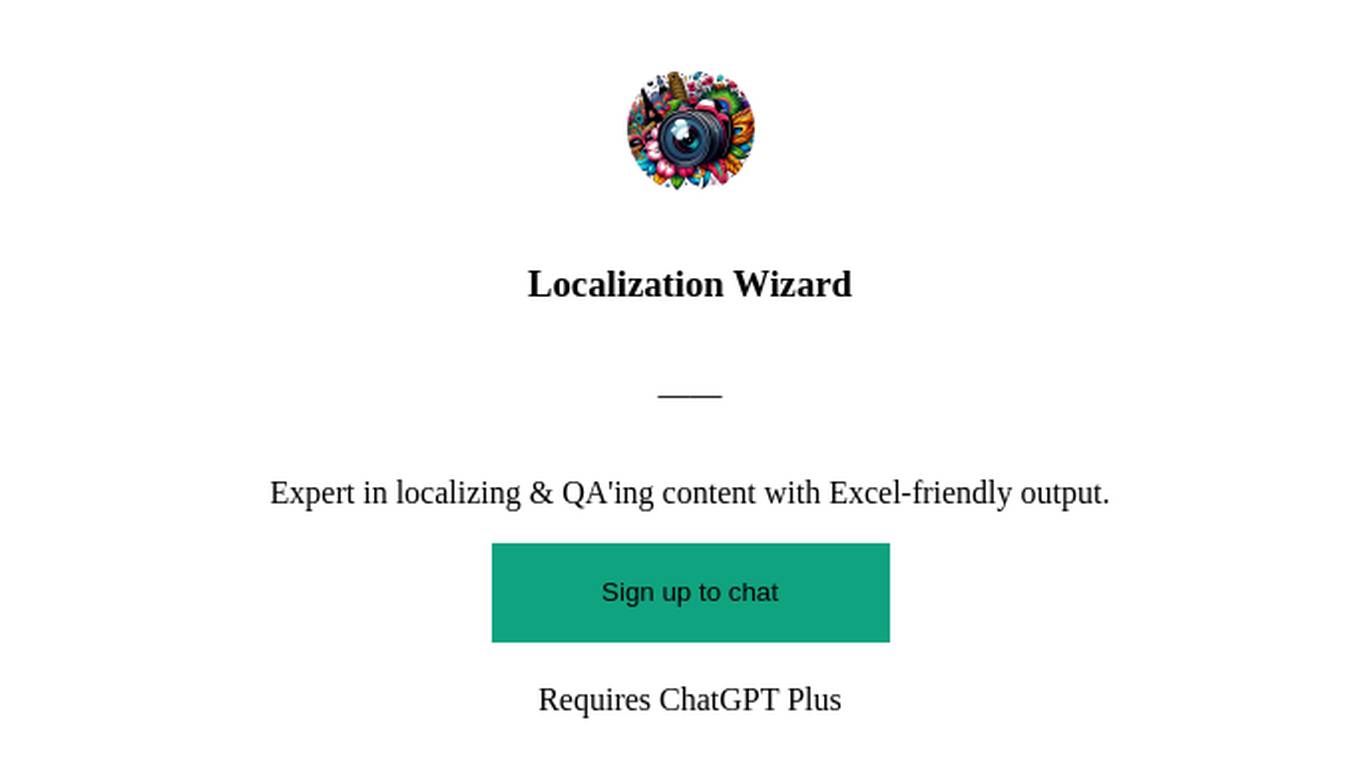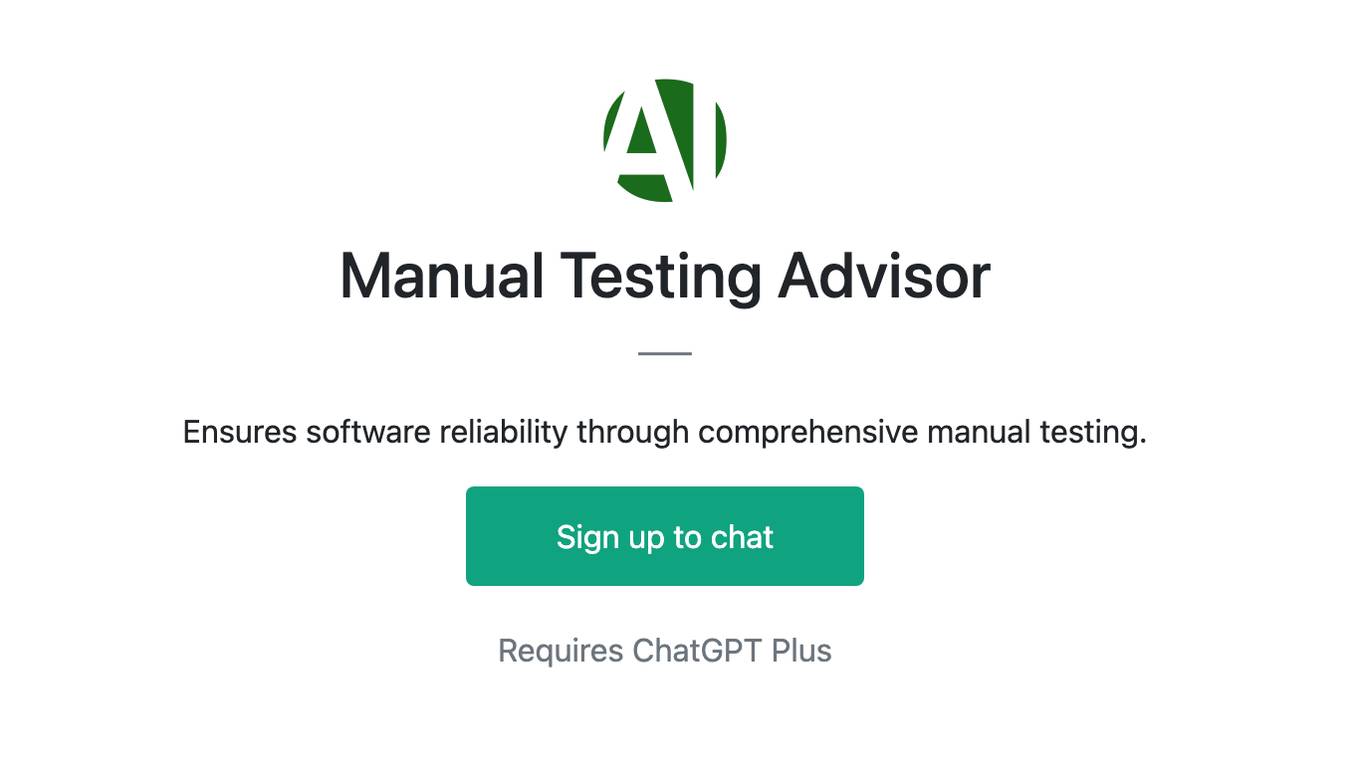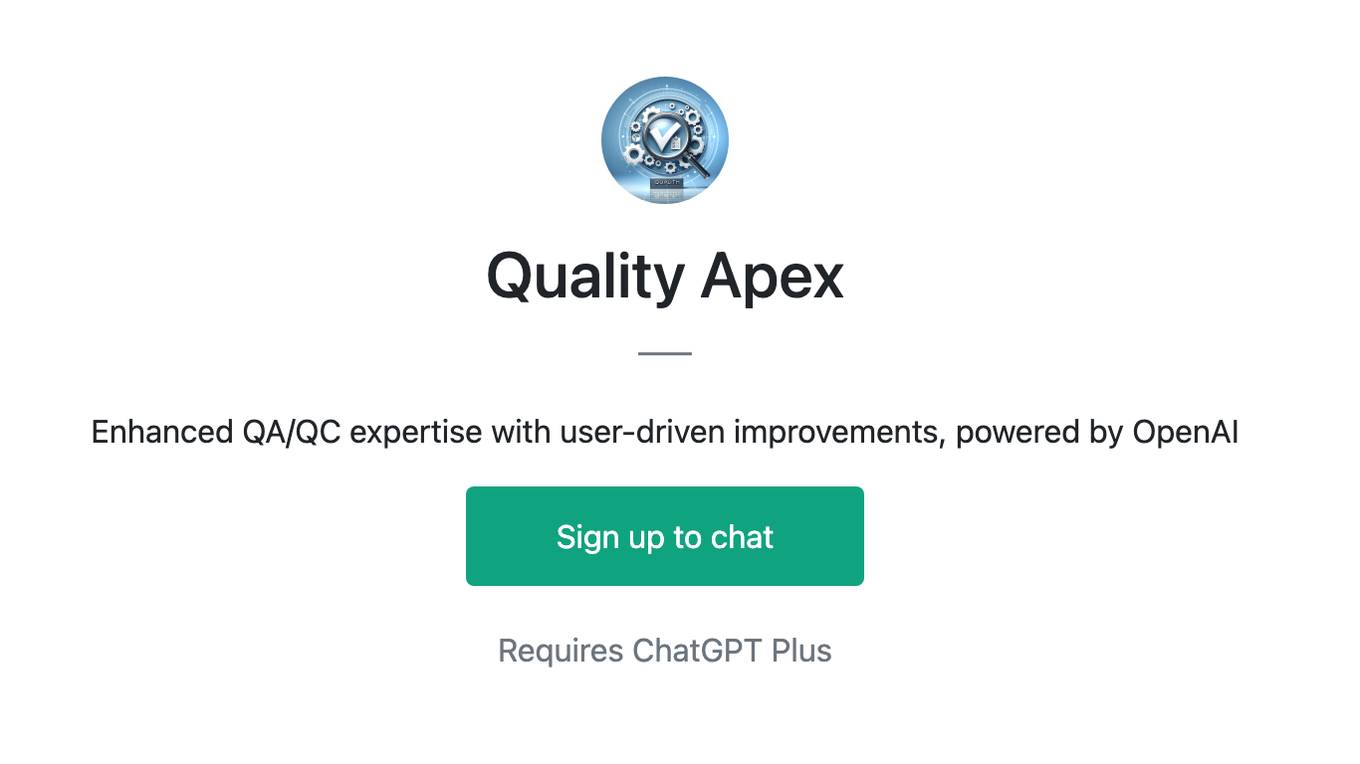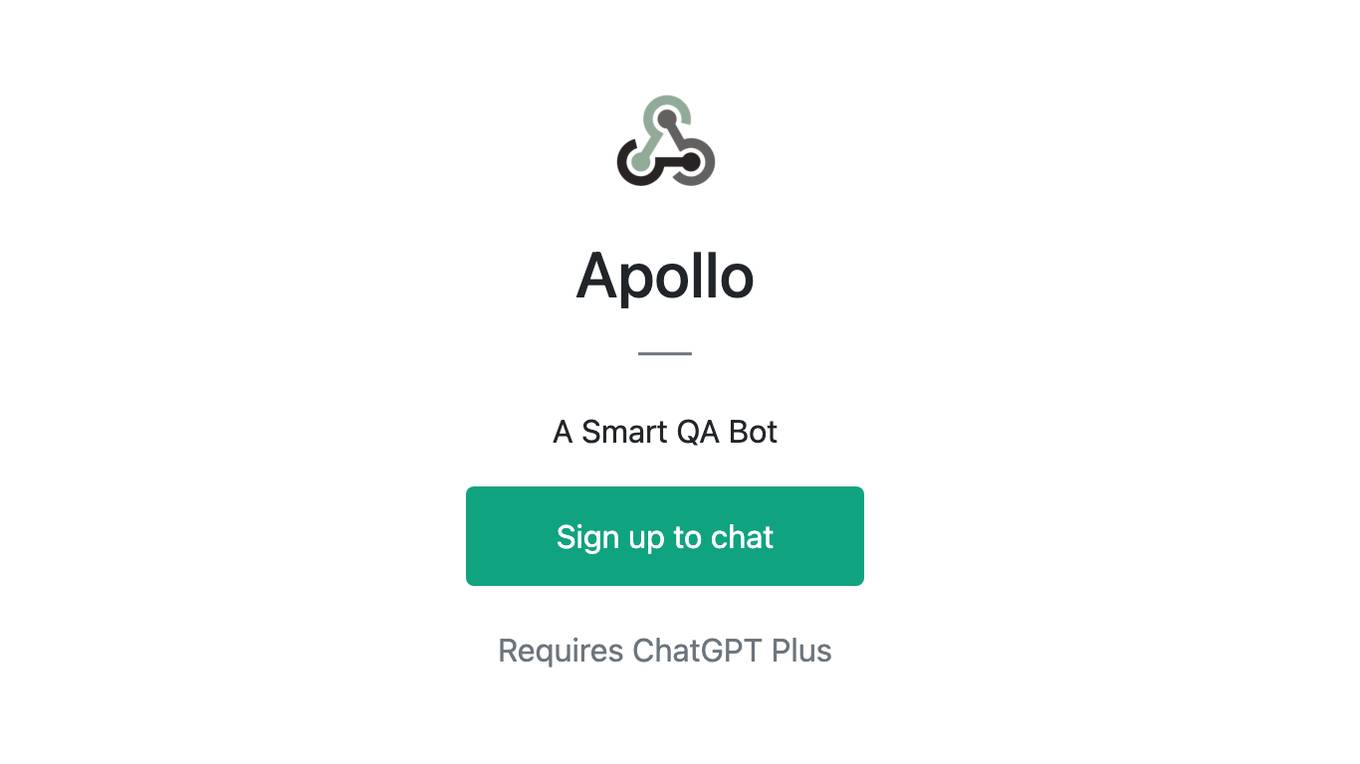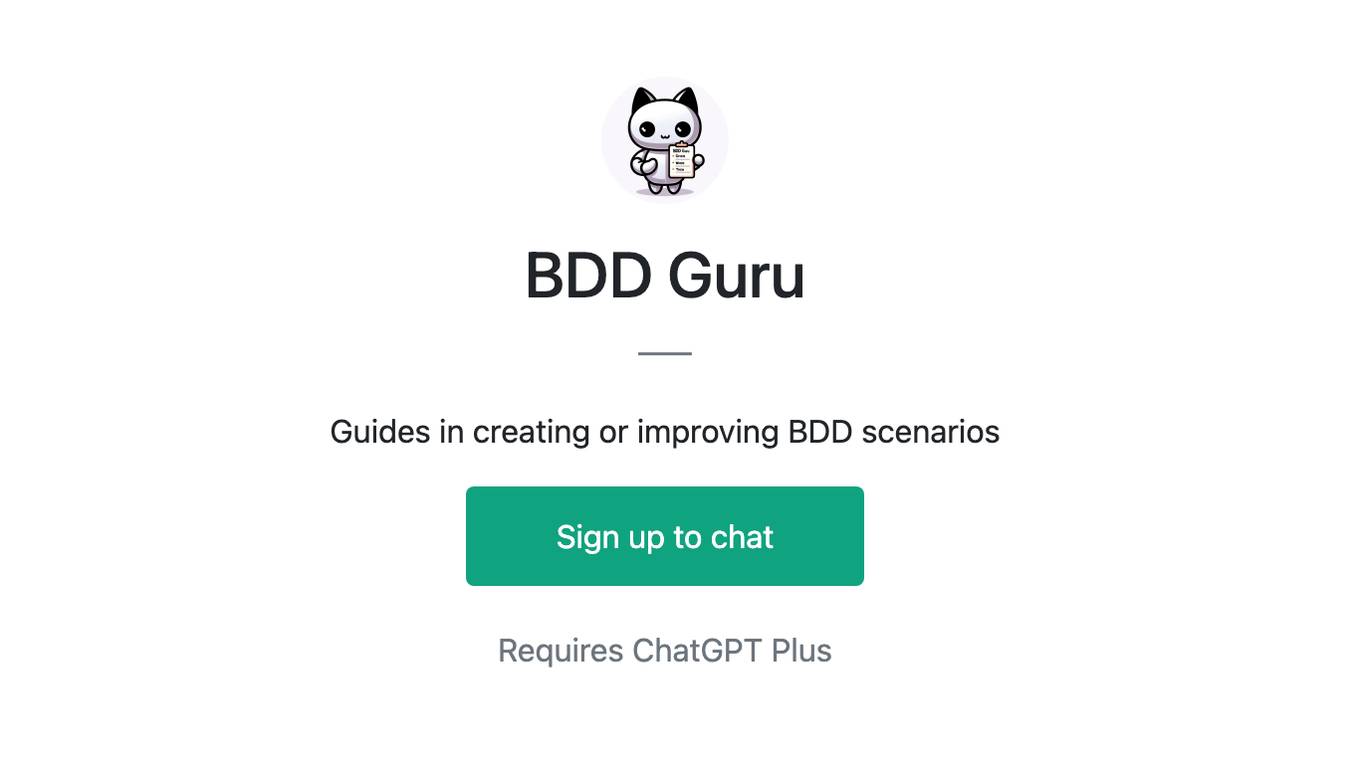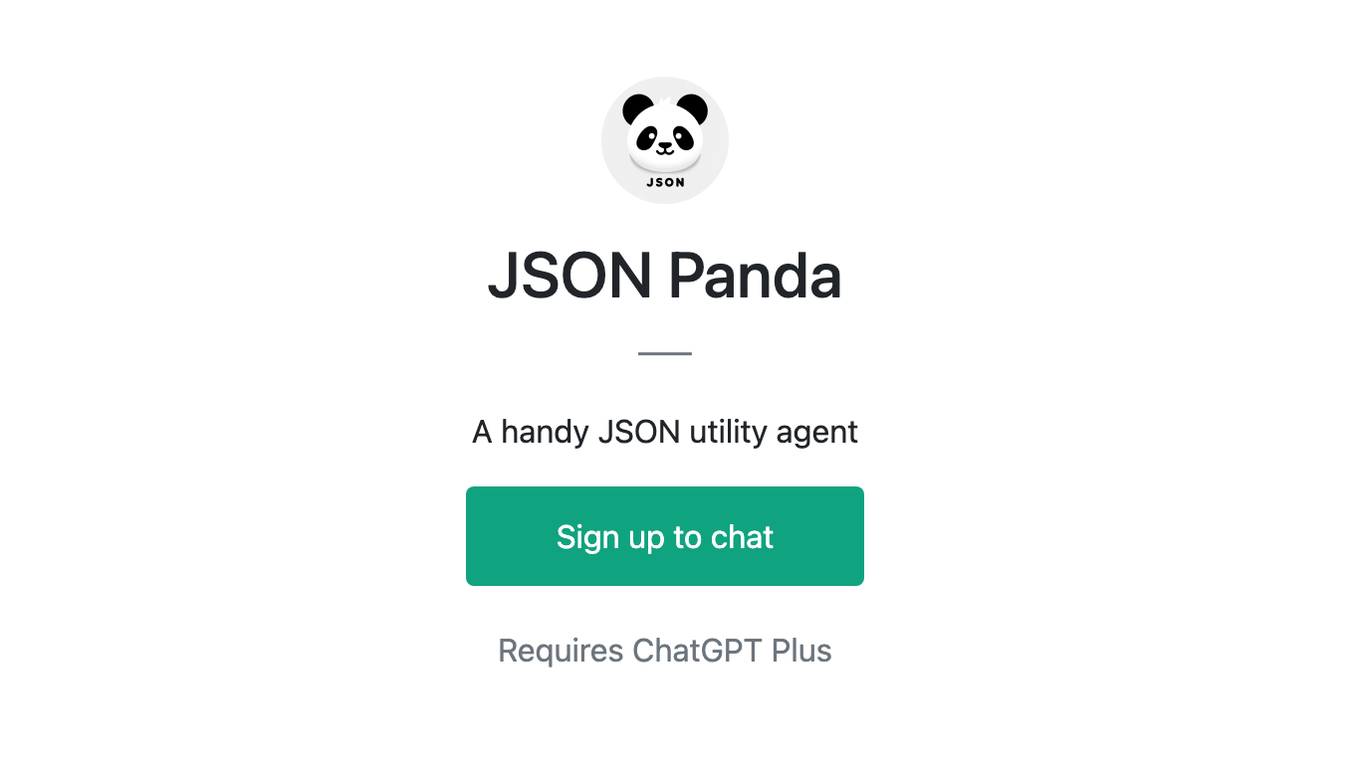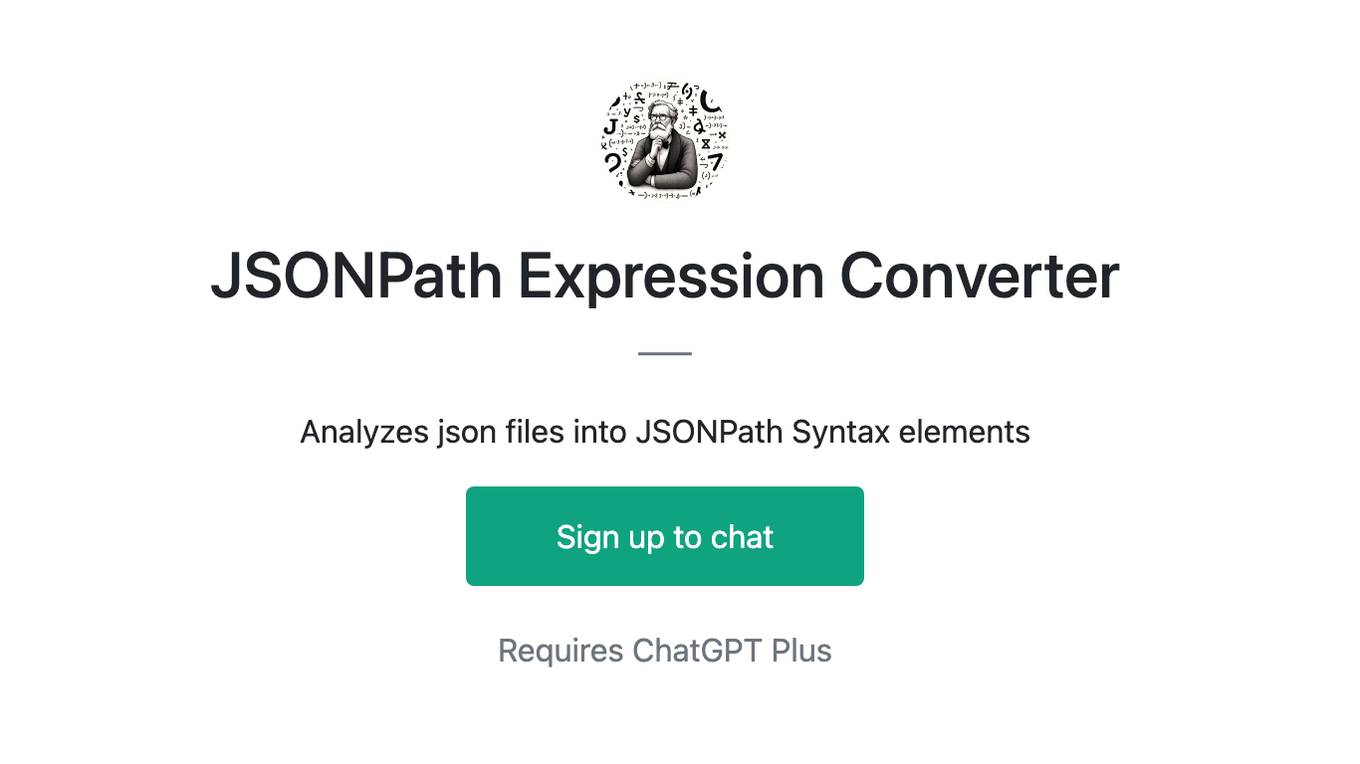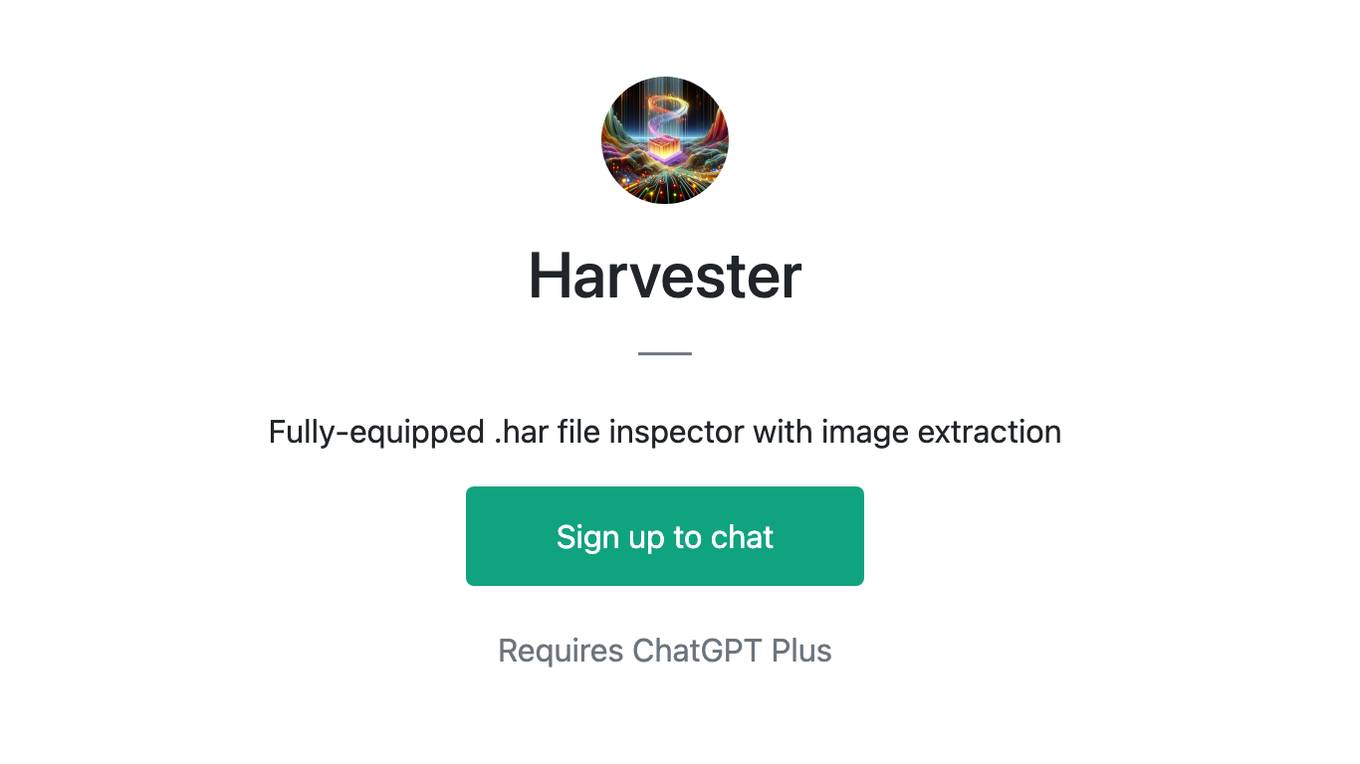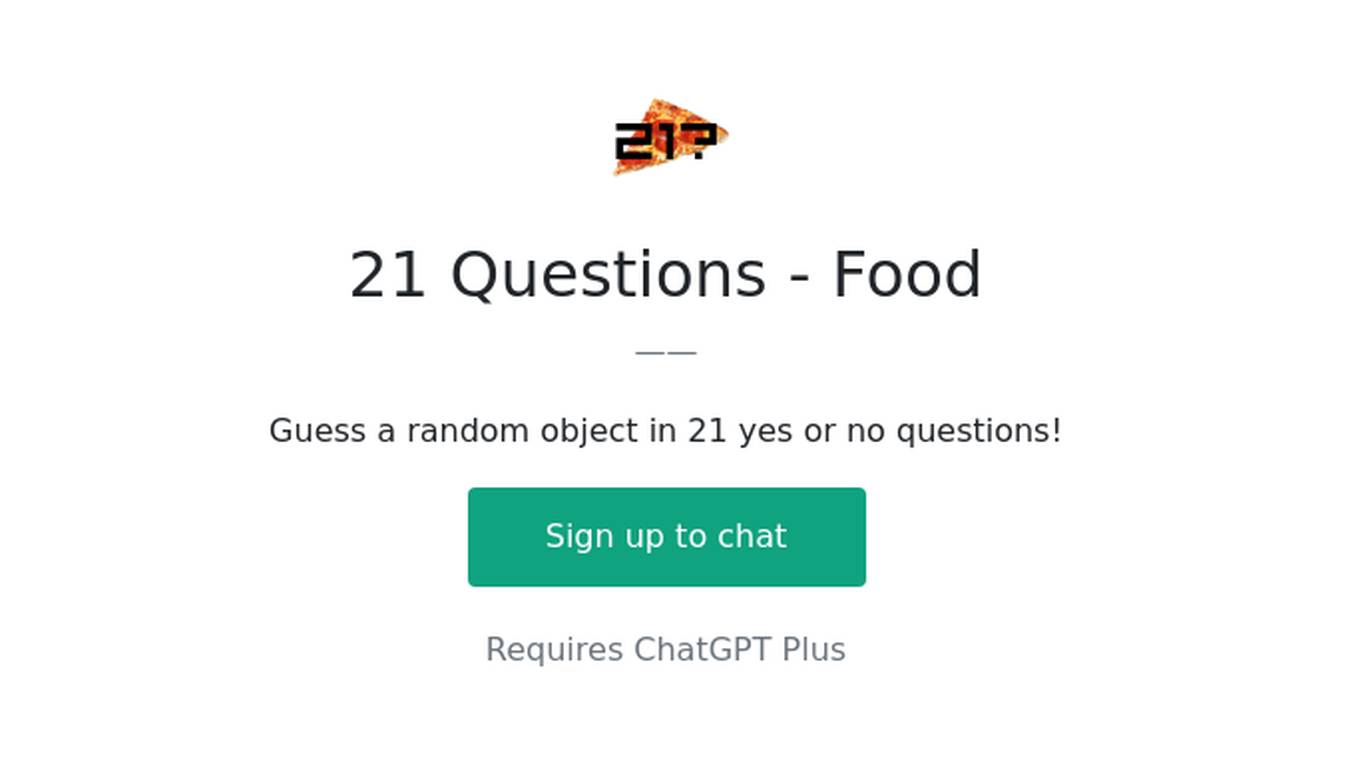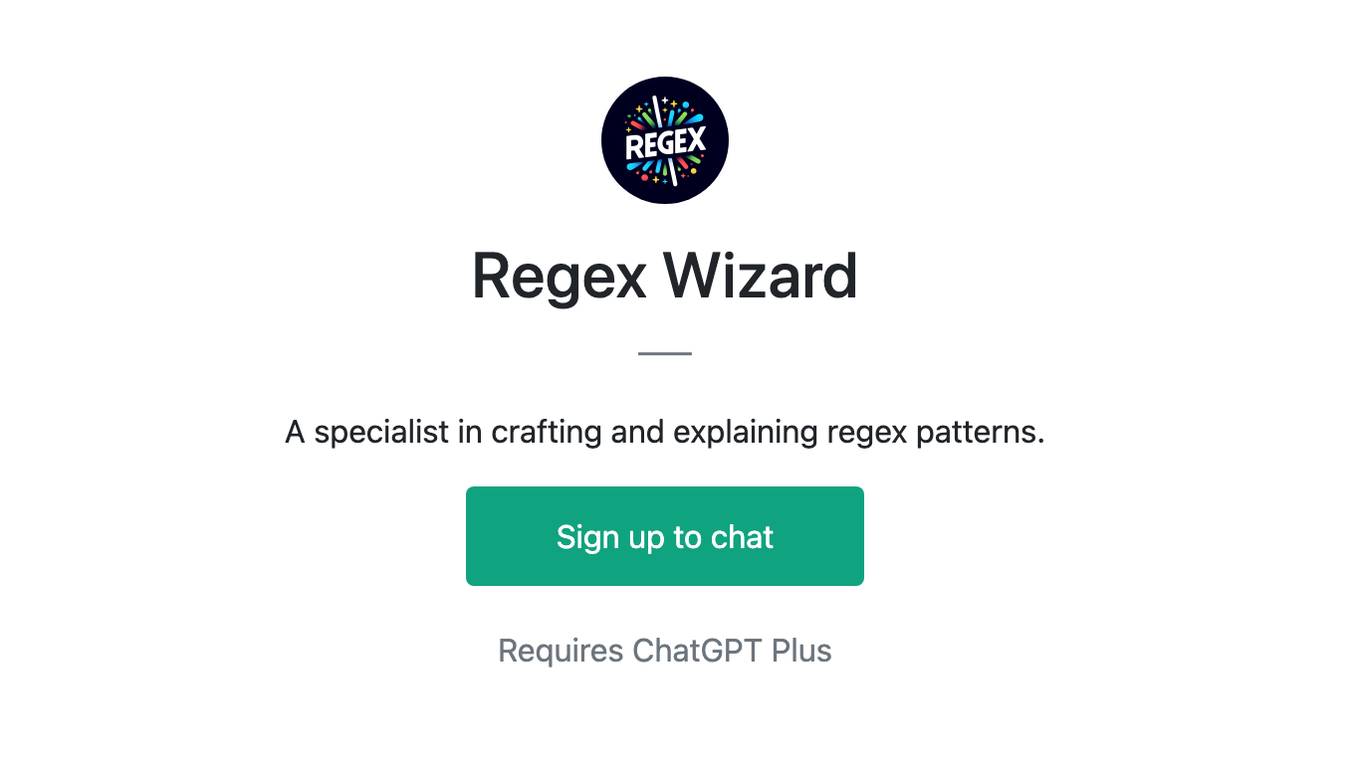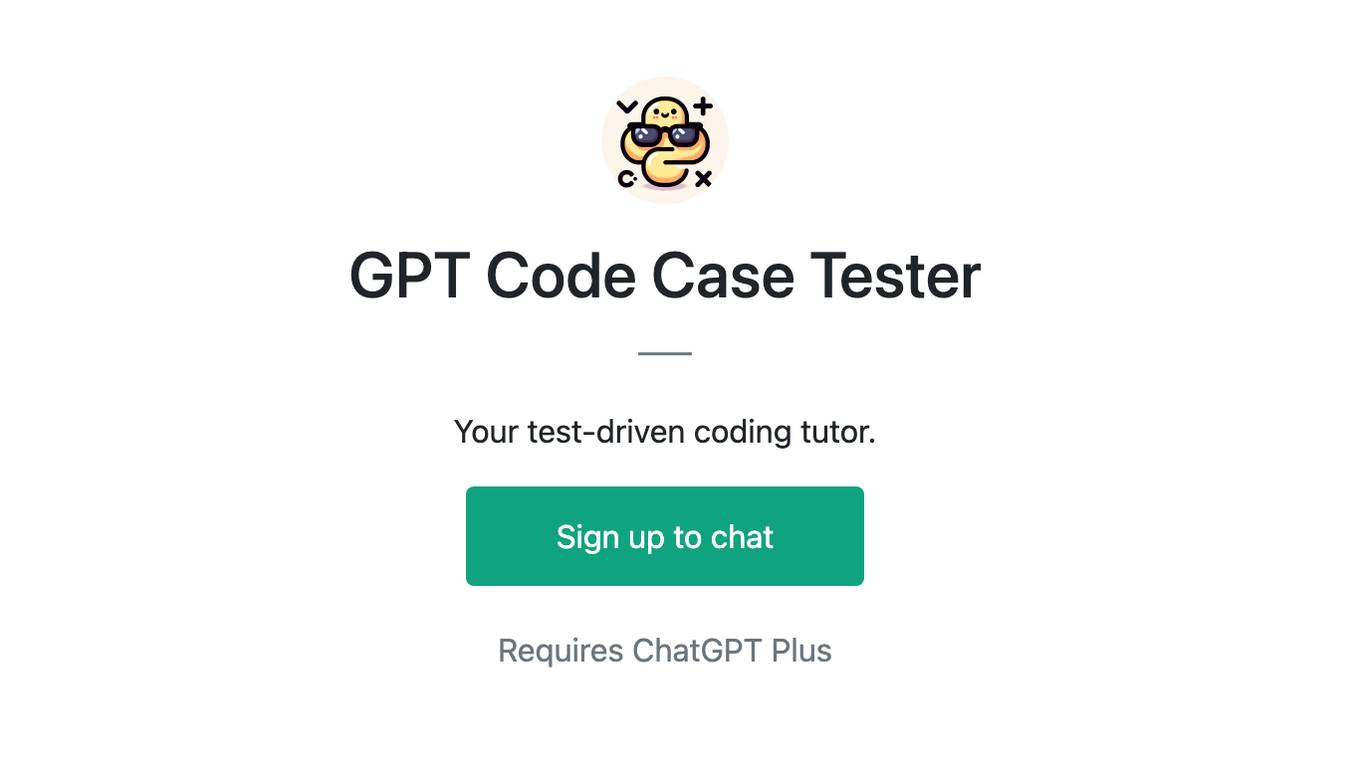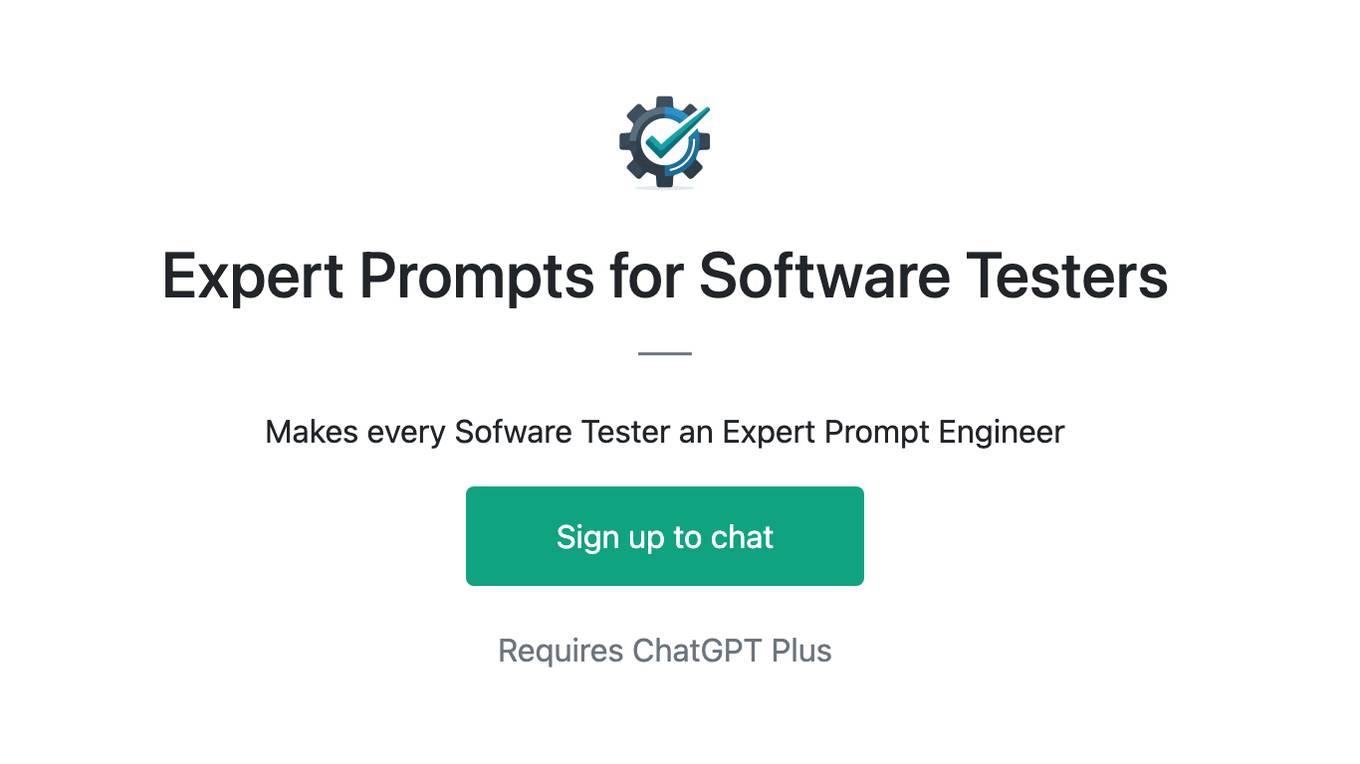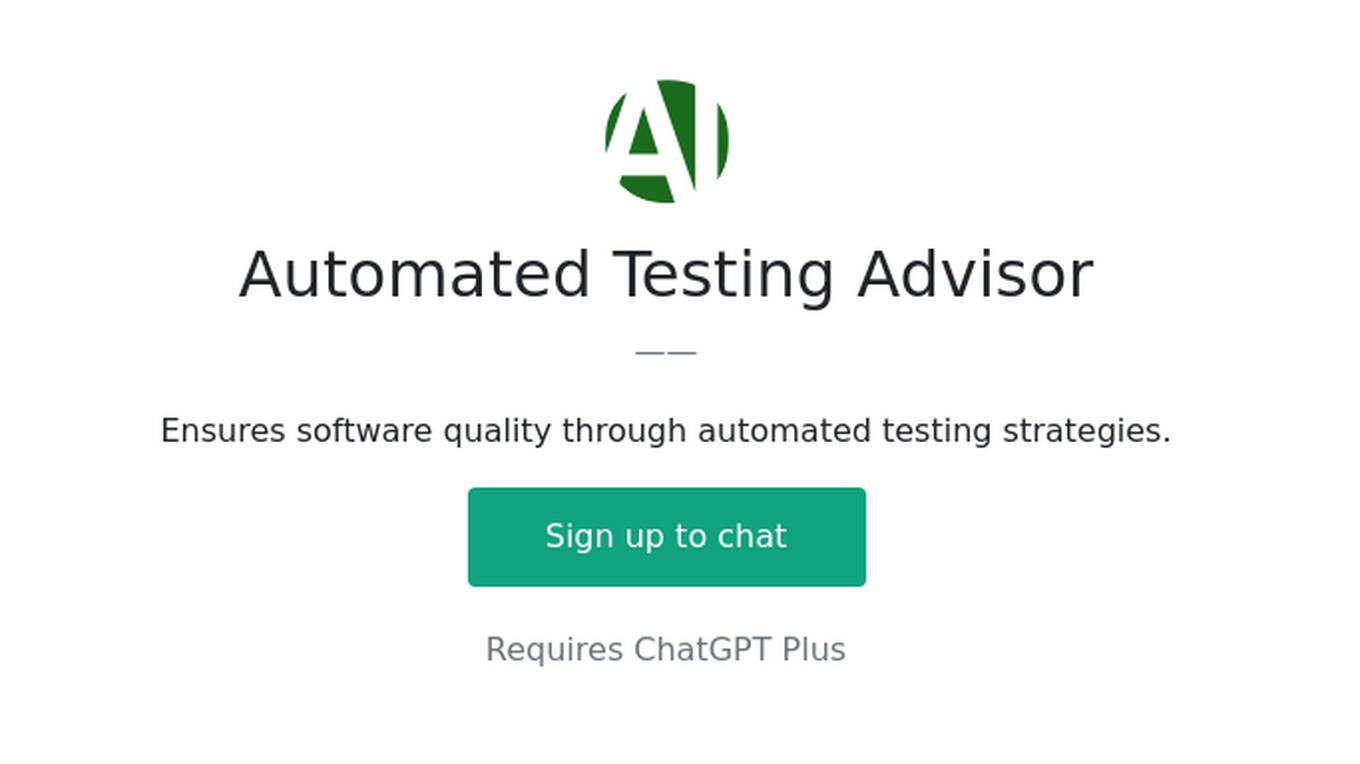Best AI tools for< Qa Analyst >
Infographic
20 - AI tool Sites
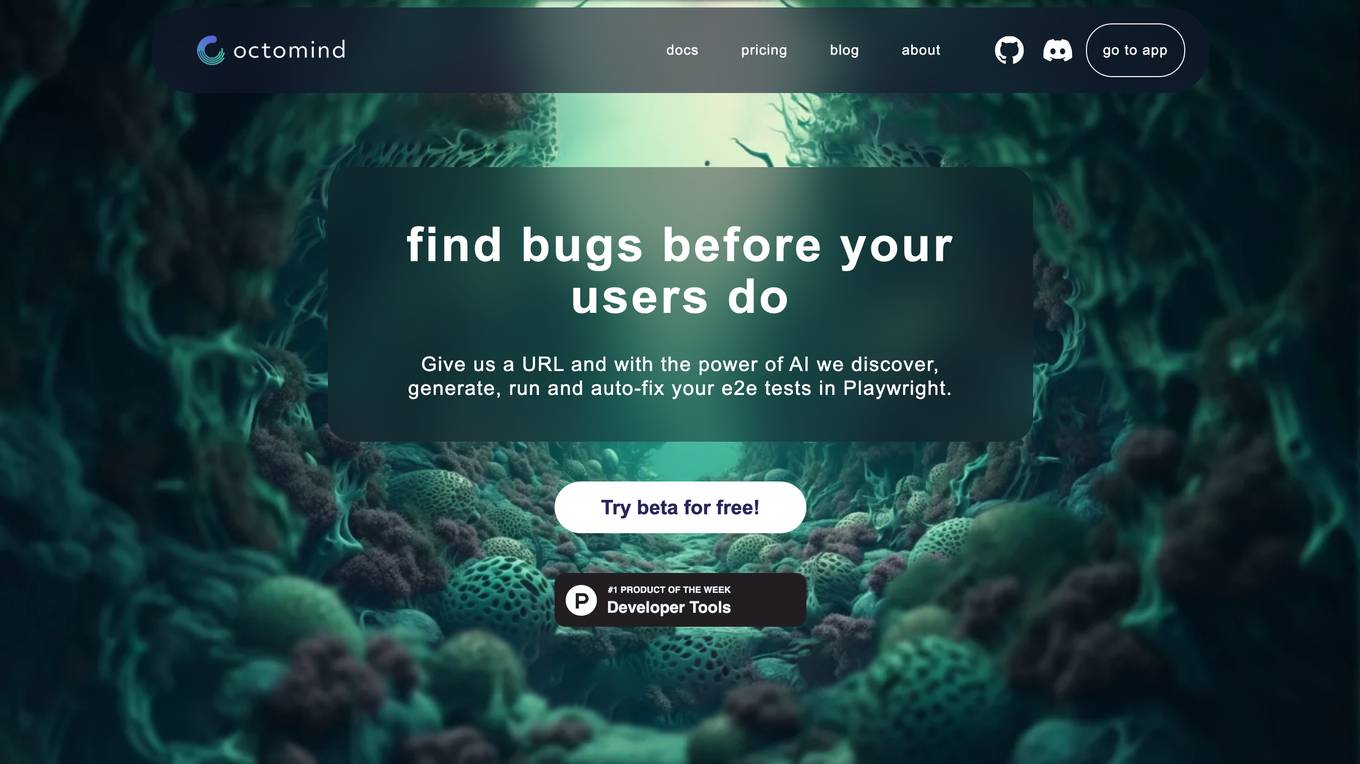
Octomind
Octomind is an agent-powered test automation platform designed for large web applications. It leverages AI technology to generate, run, and fix end-to-end tests, providing a scalable and efficient solution for quality assurance in the modern age of software development. Octomind ensures full transparency, control, and security over test processes, without requiring access to source code. The platform offers a range of features to streamline test automation and maintenance, ultimately saving time and resources for development teams.
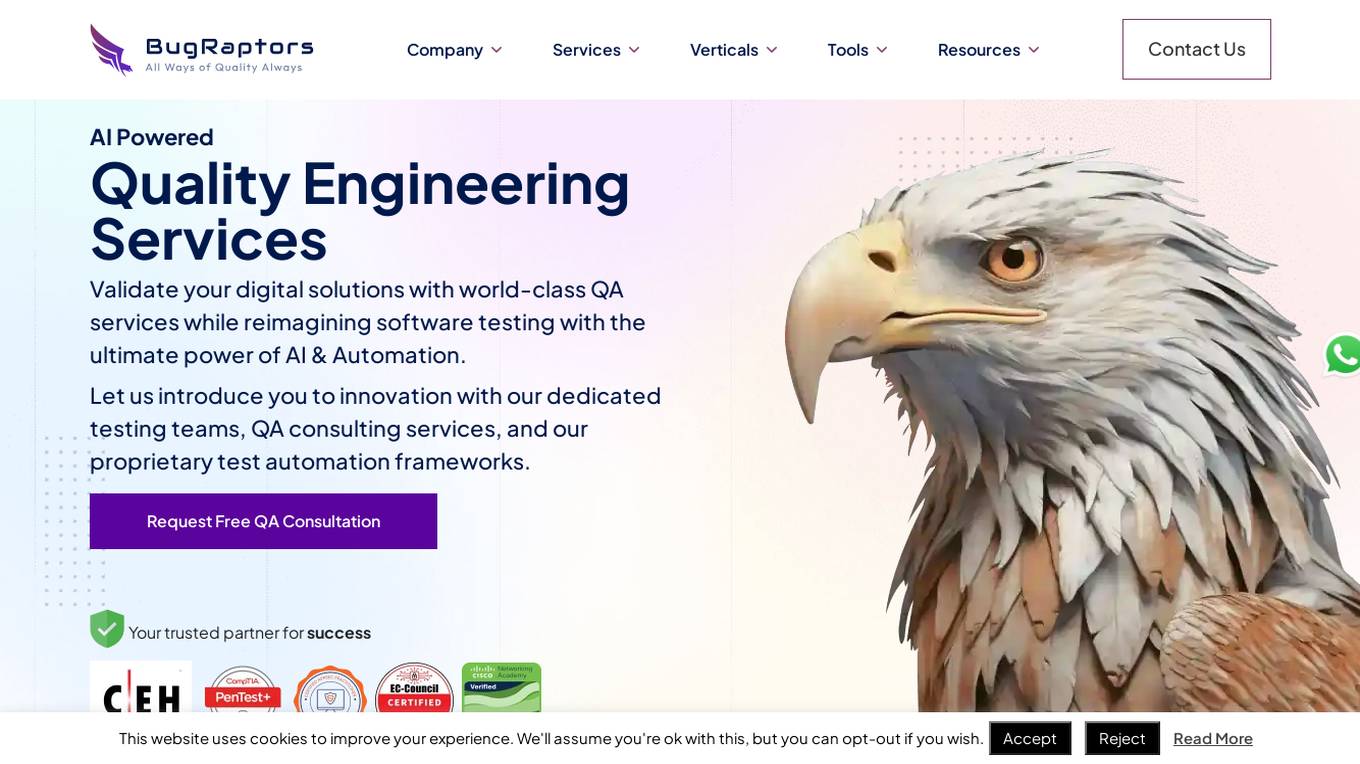
BugRaptors
BugRaptors is an AI-powered quality engineering services company that offers a wide range of software testing services. They provide manual testing, compatibility testing, functional testing, UAT services, mobile app testing, web testing, game testing, regression testing, usability testing, crowd-source testing, automation testing, and more. BugRaptors leverages AI and automation to deliver world-class QA services, ensuring seamless customer experience and aligning with DevOps automation goals. They have developed proprietary tools like MoboRaptors, BugBot, RaptorVista, RaptorGen, RaptorHub, RaptorAssist, RaptorSelect, and RaptorVision to enhance their services and provide quality engineering solutions.

nunu.ai
nunu.ai is an AI-powered platform designed to revolutionize game testing by leveraging AI agents to conduct end-to-end tests at scale. By automating repetitive tasks, the platform significantly reduces manual QA costs for game studios. With features like human-like testing, multi-platform support, and enterprise-grade security, nunu.ai offers a comprehensive solution for game developers seeking efficient and reliable testing processes.
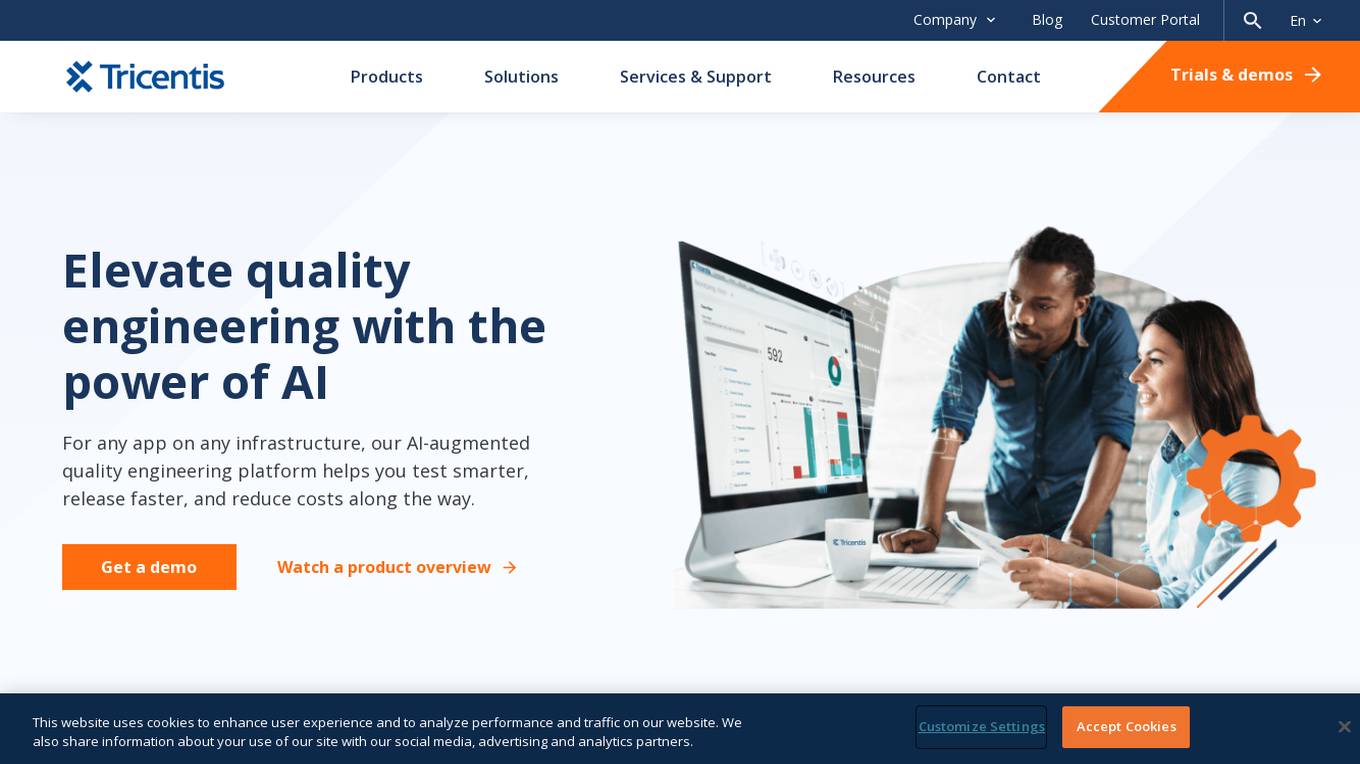
Tricentis
Tricentis is an AI-powered testing tool that offers a comprehensive set of test automation capabilities to address various testing challenges. It provides end-to-end test automation solutions for a wide range of applications, including Salesforce, mobile testing, performance testing, and data integrity testing. Tricentis leverages advanced ML technologies to enable faster and smarter testing, ensuring quality at speed with reduced risk, time, and costs. The platform also offers continuous performance testing, change and data intelligence, and model-based, codeless test automation for mobile applications.
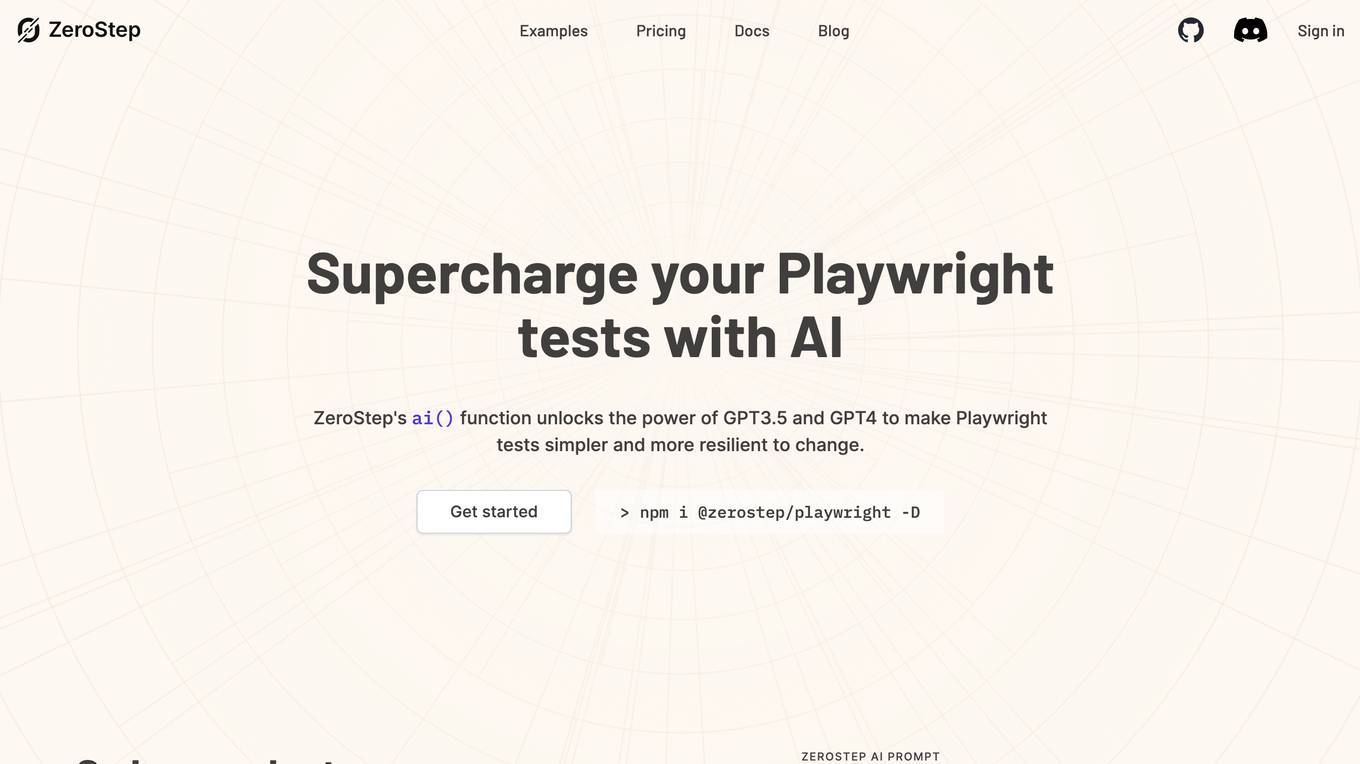
ZeroStep
ZeroStep is an AI tool designed to supercharge Playwright tests by leveraging the power of GPT3.5 and GPT4. It eliminates the need for CSS selectors or XPath locators, allowing users to provide plain-text instructions for actions. ZeroStep integrates seamlessly into Playwright, enabling users to incorporate AI into tests without disrupting their development workflow. The tool offers a unique approach to E2E testing, making test automation faster and more resilient to changes.
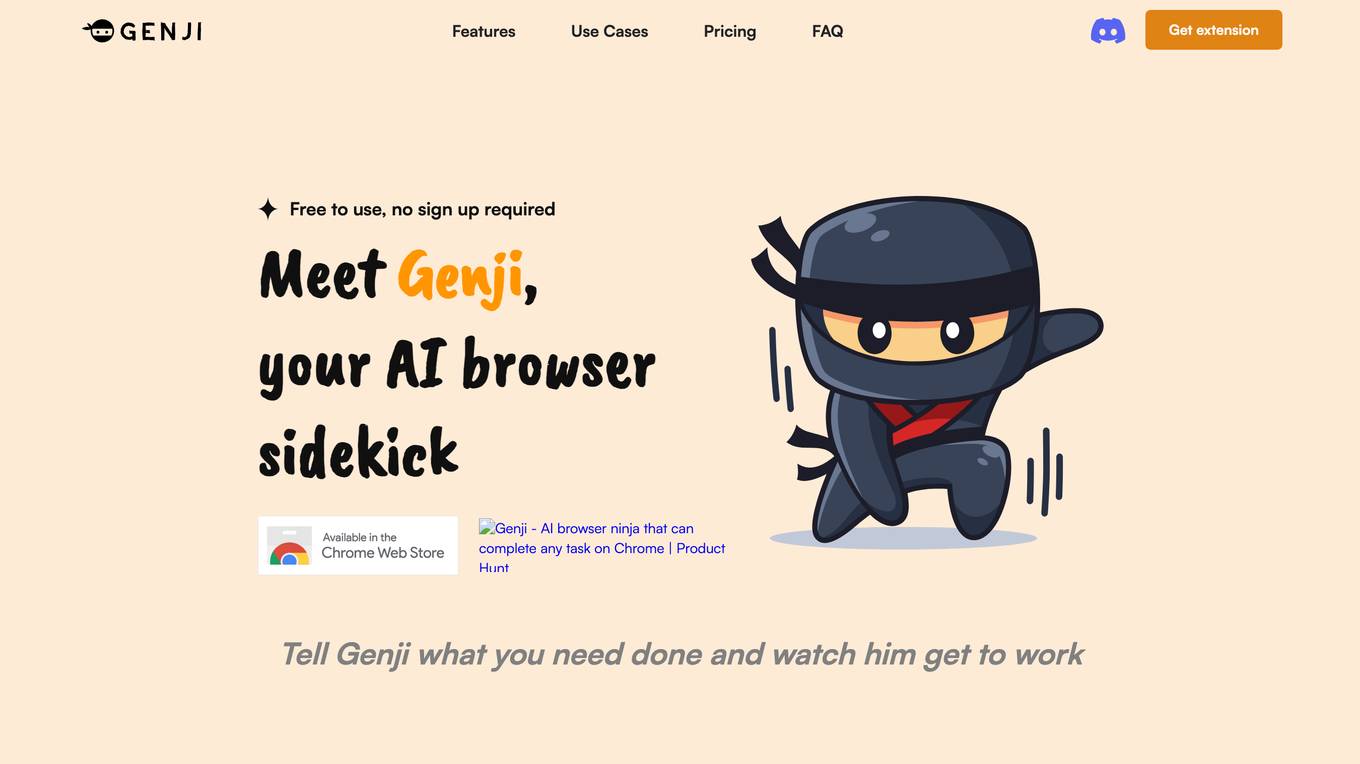
Genji
Genji is an AI Browser Assistant that aims to revolutionize the way users interact with their web browsers. By leveraging artificial intelligence, Genji acts as a virtual sidekick, capable of automating various tasks and actions within the browser environment. Users can delegate tasks to Genji using plain language commands, allowing them to focus on more important matters while Genji handles the rest. With features like task automation, voice input commands, and task scheduling, Genji offers a seamless browsing experience for both personal and professional use.
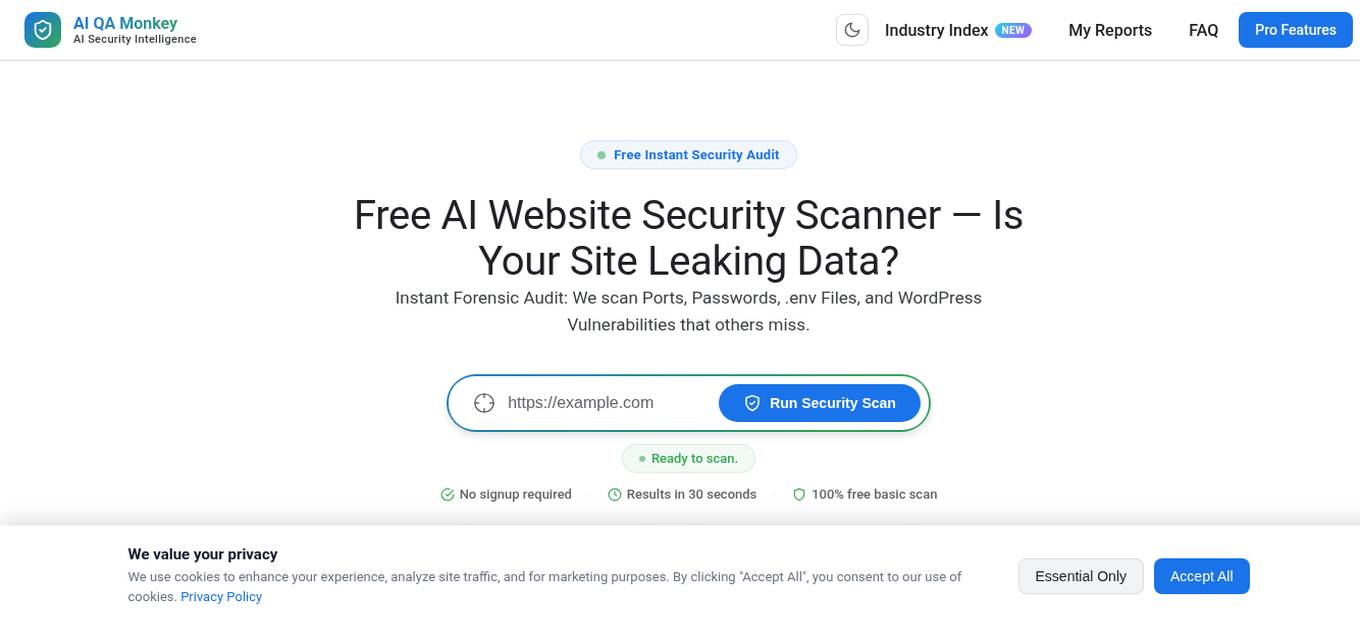
AI QA Monkey
AI QA Monkey is a free website security scanner that offers instant security audits to check website security scores. The tool scans for vulnerabilities such as leaked sensitive data, open ports, passwords, .env files, and WordPress vulnerabilities. It provides a detailed security report with actionable insights and AI-powered fixes. Users can export reports in PDF, JSON, or CSV formats. AI QA Monkey is designed to help businesses improve their security posture and comply with GDPR regulations.
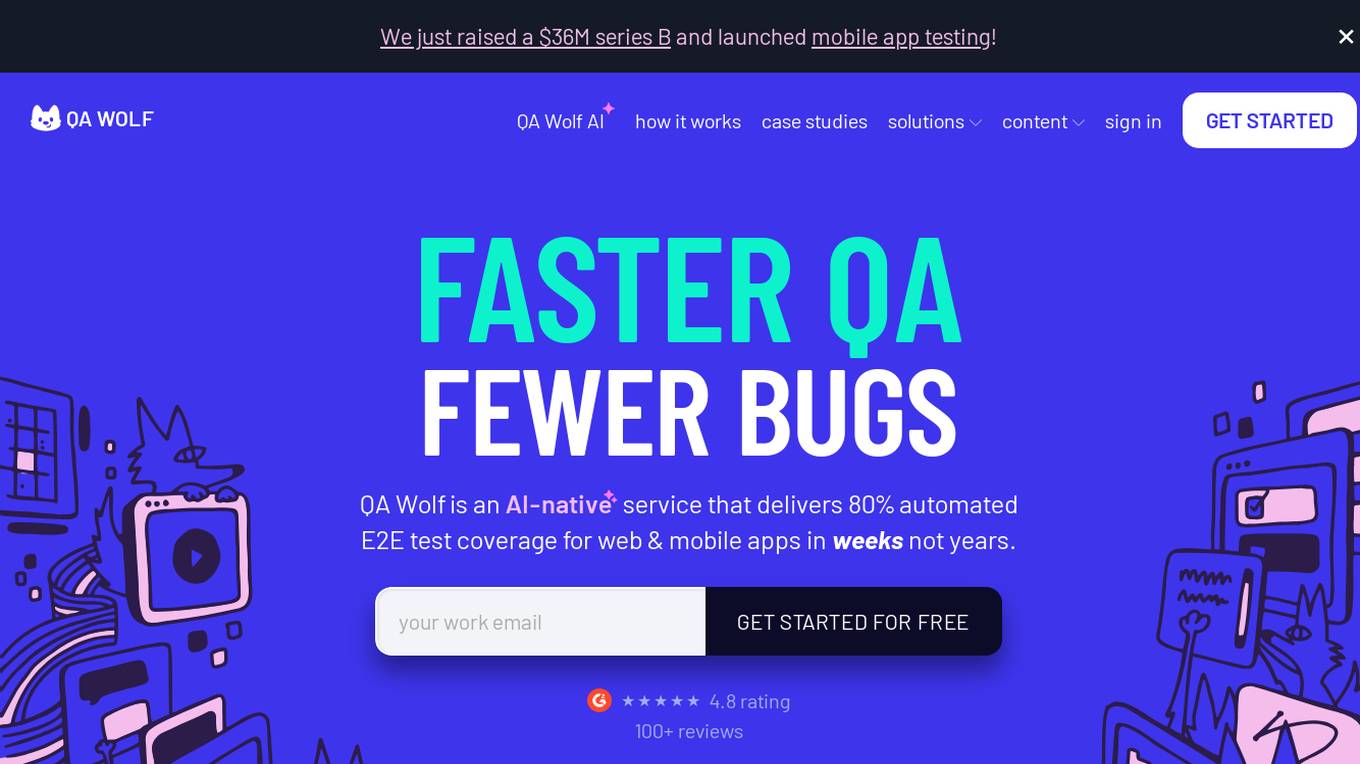
QA Wolf
QA Wolf is an AI-native service that delivers 80% automated end-to-end test coverage for web and mobile apps in weeks, not years. It automates hundreds of tests using Playwright code for web and Appium for mobile, providing reliable test results on every run. With features like 100% parallel run infrastructure, zero flake guarantee, and unlimited test runs, QA Wolf aims to help software teams ship better software faster by taking QA completely off their plate.
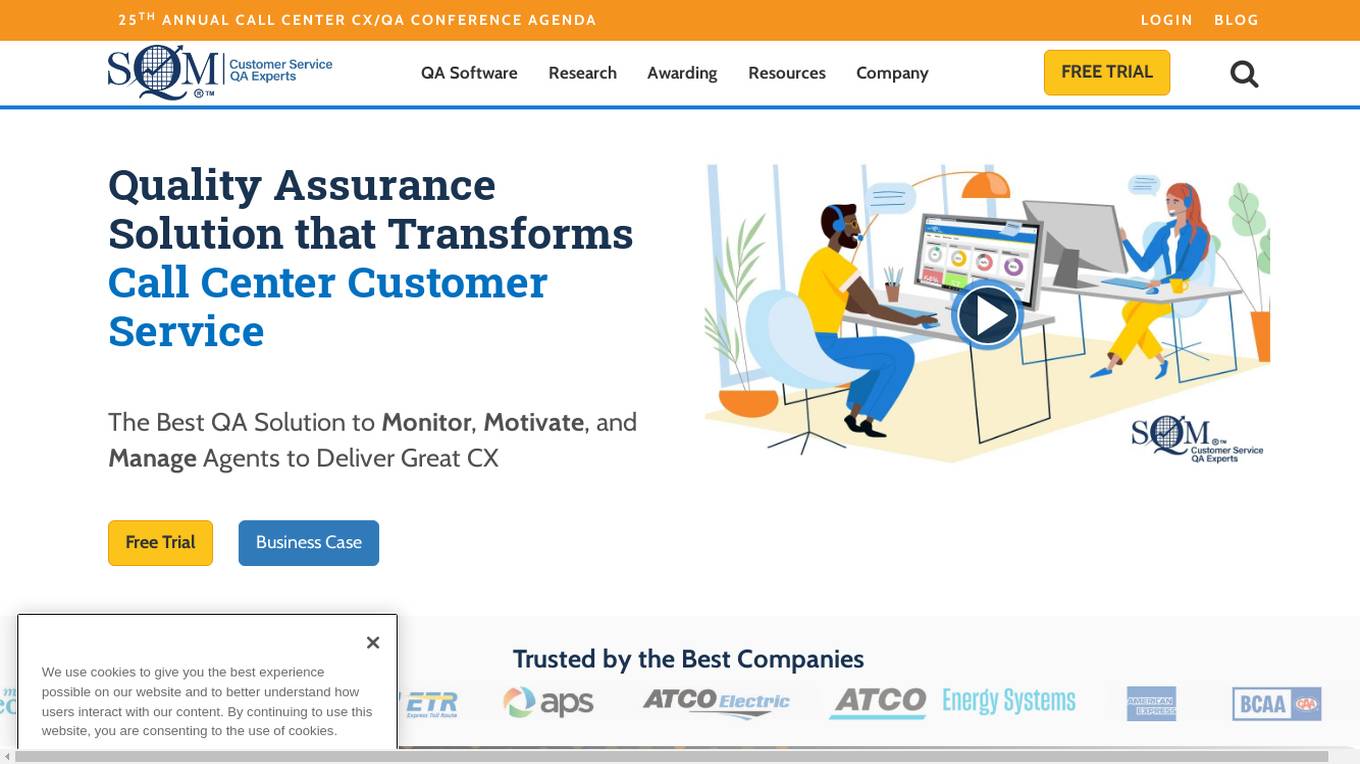
mySQM™ QA
SQM Group's mySQM™ QA software is a comprehensive solution for call centers to monitor, motivate, and manage agents, ultimately improving customer experience (CX) and reducing QA costs by 50%. It combines three data sources: post-call surveys, call handling data, and call compliance feedback, providing holistic CX insights. The software offers personalized agent self-coaching suggestions, real-time recognition for great CX delivery, and benchmarks, ranks, awards, and certifies Csat, FCR, and QA performance.
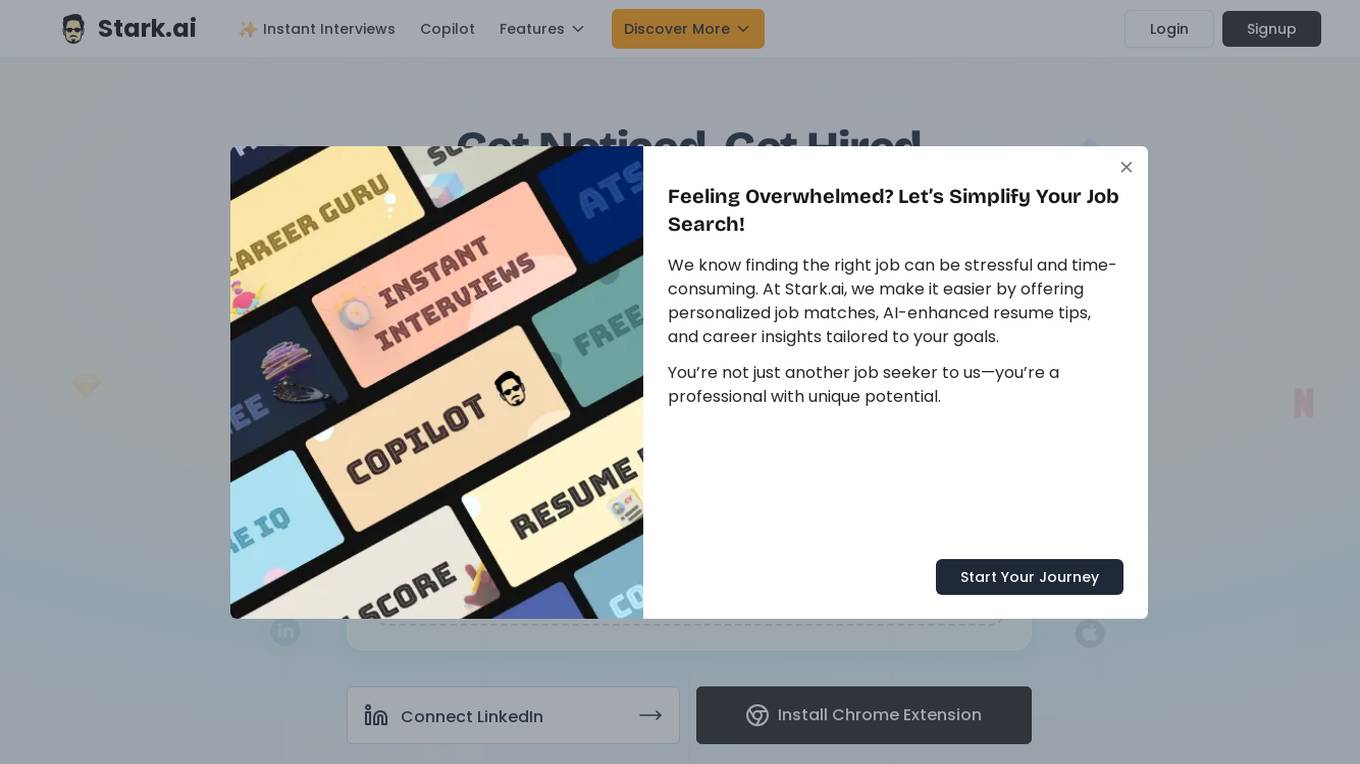
Stark.ai
Stark.ai is an AI-powered job search tool that revolutionizes the way job seekers navigate their professional journey. It offers a range of features such as Resume Builder, Career Guru AI insights, Job Match Score, ATS Friendliness Check, and Skill Builder to help users enhance their skills, optimize their resumes, and streamline their job search process. Stark.ai empowers users to get noticed, get hired faster, and transform their careers with AI-driven precision.
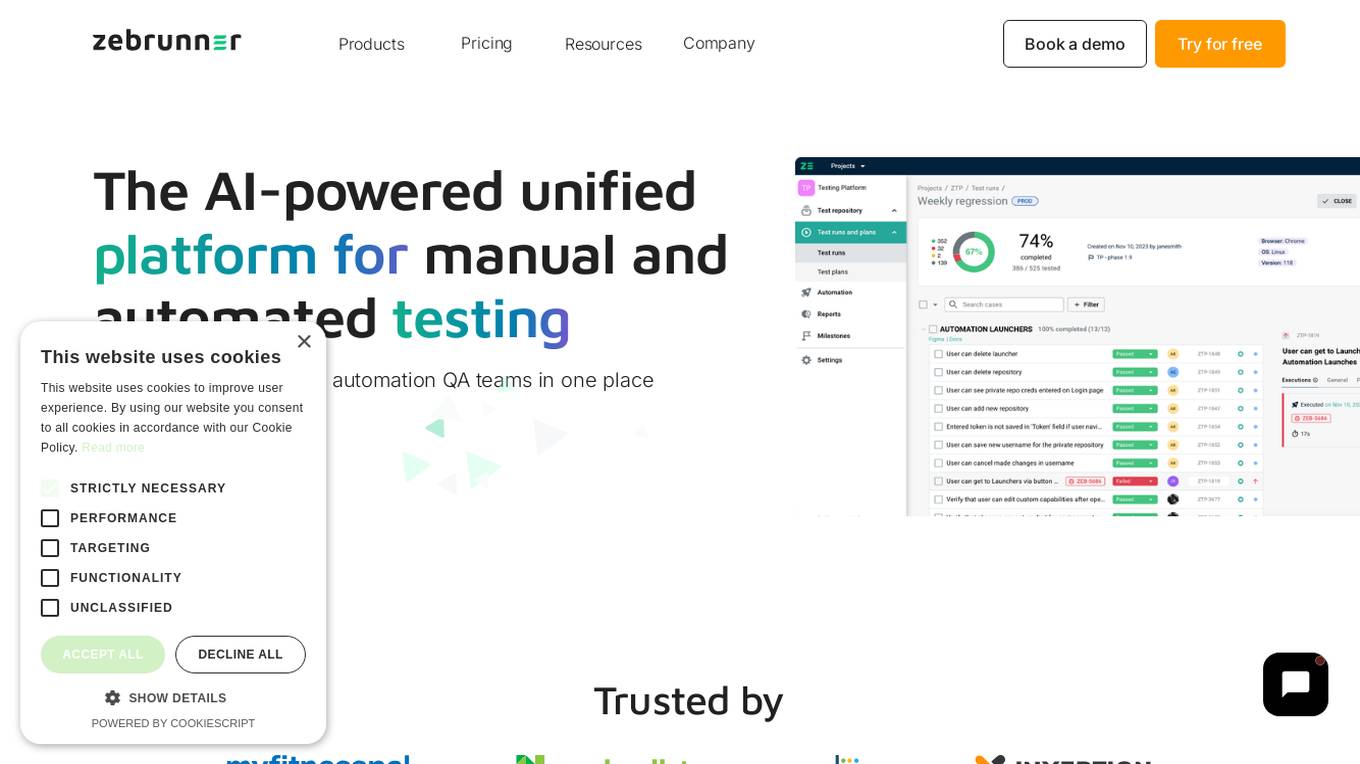
Zebrunner
Zebrunner is an AI-powered unified platform for manual and automated testing, designed to synchronize manual and automation QA teams in one place. It offers features such as test management, automation reporting, and test case management, with capabilities for generating new test cases, autocomplete existing ones, and categorize failures using AI. Zebrunner provides a clean and intuitive UI, unmatched performance, powerful reporting, rich integrations, and 24/7 support for efficient testing processes. It also offers customizable dashboards, sharable reports, and seamless integrations with Jira and other SDLC tools for streamlined workflows.
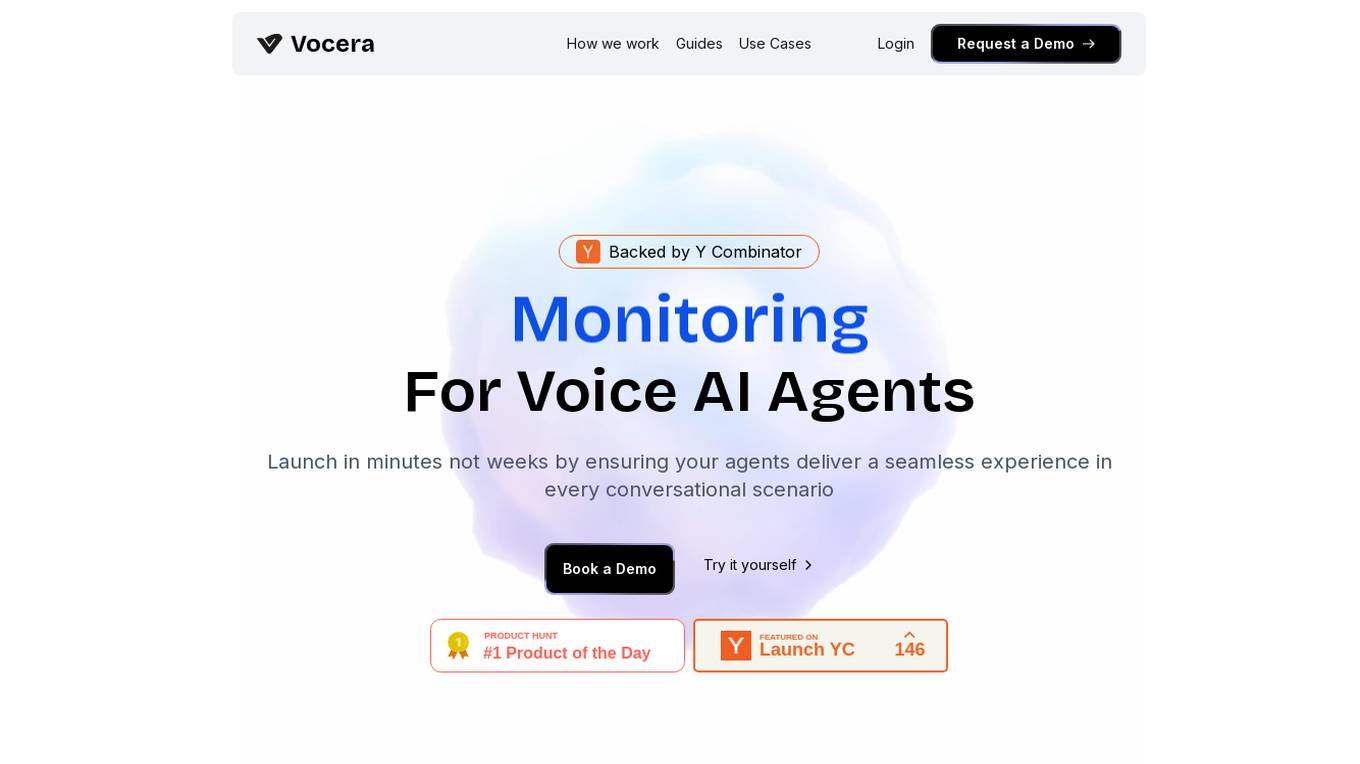
Vocera
Vocera is an AI voice agent testing tool that allows users to test and monitor voice AI agents efficiently. It enables users to launch voice agents in minutes, ensuring a seamless conversational experience. With features like testing against AI-generated datasets, simulating scenarios, and monitoring AI performance, Vocera helps in evaluating and improving voice agent interactions. The tool provides real-time insights, detailed logs, and trend analysis for optimal performance, along with instant notifications for errors and failures. Vocera is designed to work for everyone, offering an intuitive dashboard and data-driven decision-making for continuous improvement.
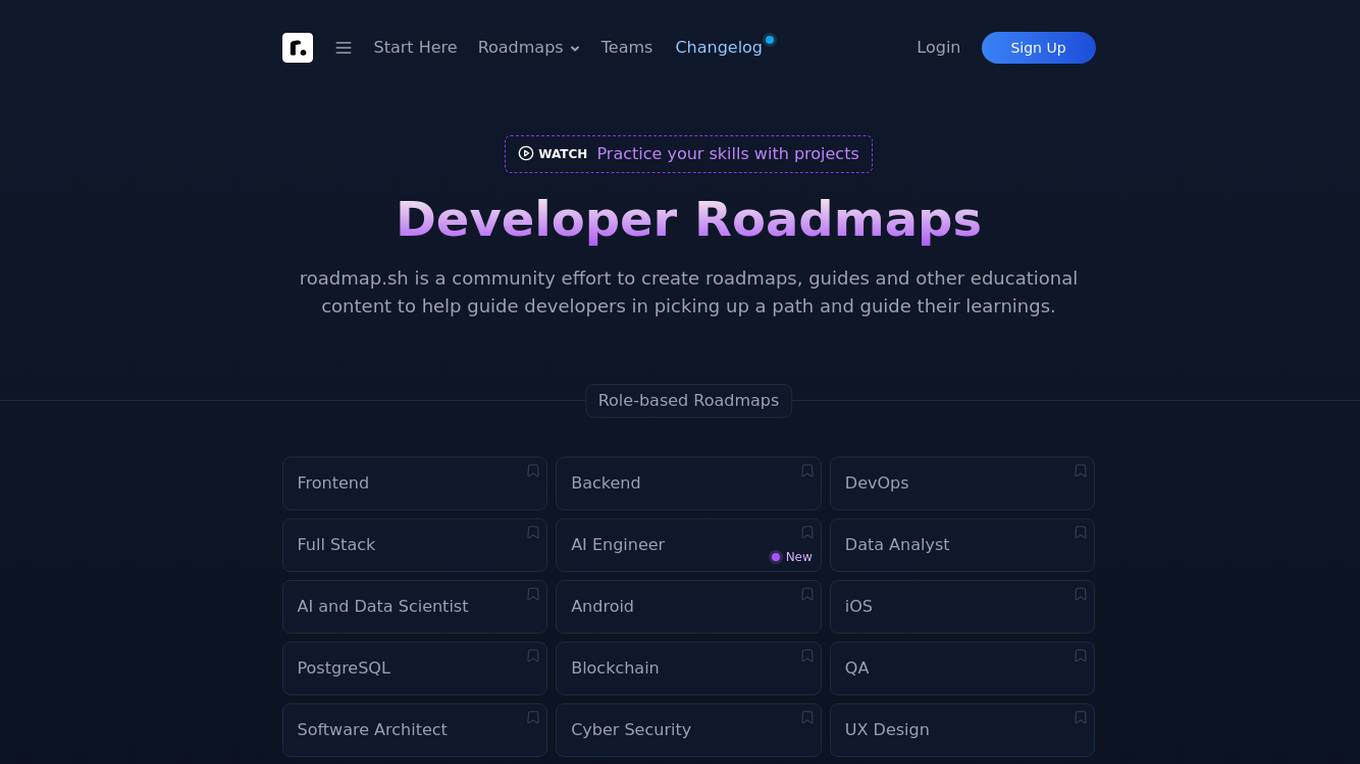
Developer Roadmaps
Developer Roadmaps (roadmap.sh) is a community-driven platform offering official roadmaps, guides, projects, best practices, questions, and videos to assist developers in skill development and career growth. It provides role-based and skill-based roadmaps covering various technologies and domains. The platform is actively maintained and continuously updated to enhance the learning experience for developers worldwide.
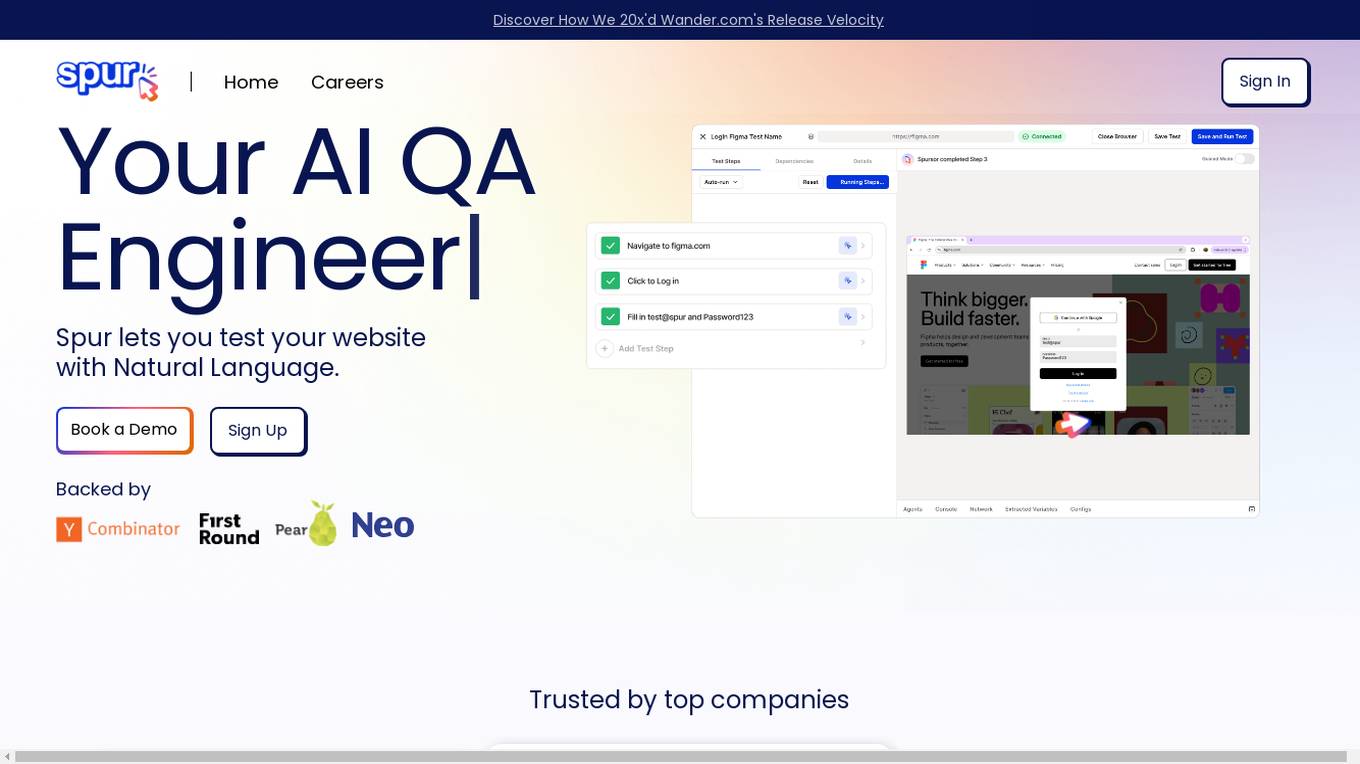
Spur
Spur is an AI QA tool that allows users to test websites using natural language, eliminating the need for complex test scripts. It offers reliable automated tests that adapt to UI changes, real-time playback for debugging, and powerful validations. Spur's AI-powered tests reduce manual testing time, improve software testing processes, and ensure the reliability of tests even with site changes. The tool is user-friendly, requires no coding skills, and supports API testing.
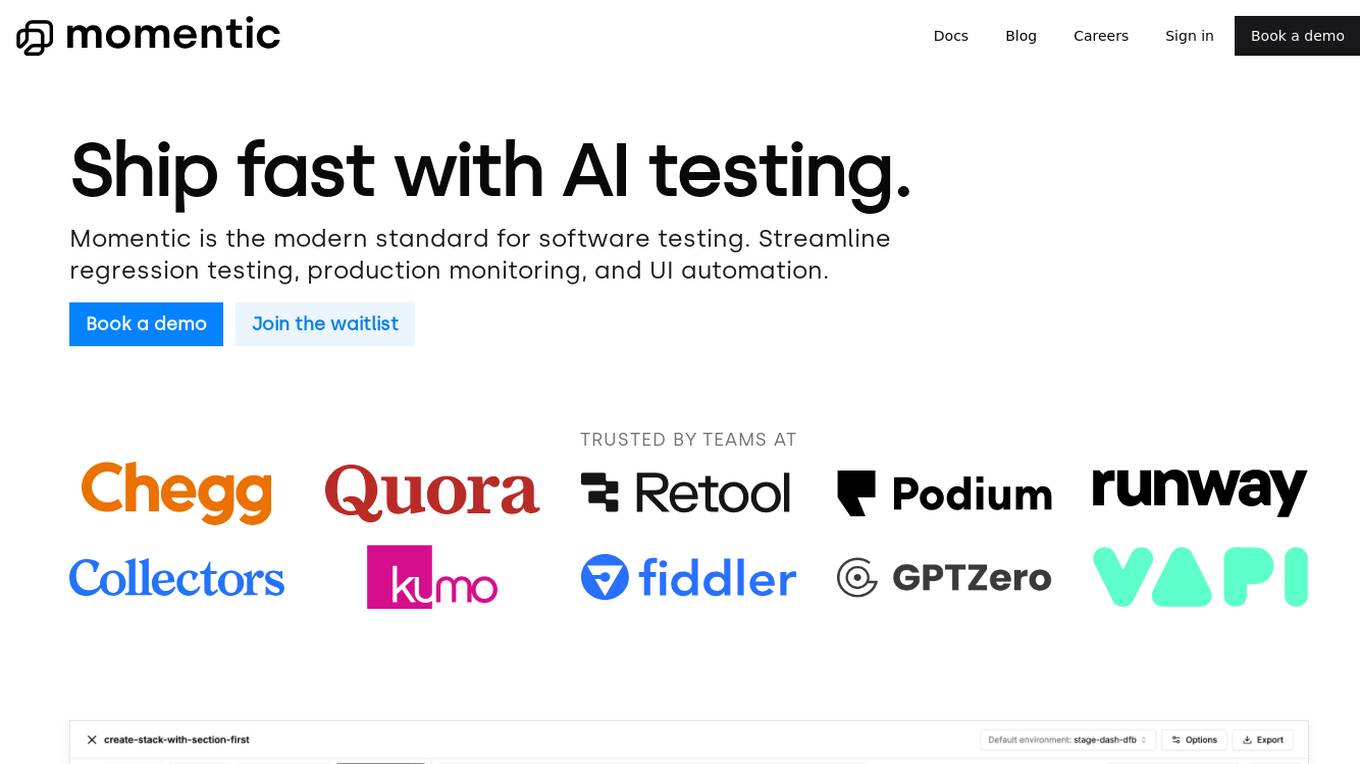
Momentic
Momentic is an AI testing tool that offers automated AI testing for software applications. It streamlines regression testing, production monitoring, and UI automation, making test automation easy with its AI capabilities. Momentic is designed to be simple to set up, easy to maintain, and accelerates team productivity by creating and deploying tests faster with its intuitive low-code editor. The tool adapts to applications, saves time with automated test maintenance, and allows testing anywhere, anytime using cloud, local, or CI/CD pipelines.
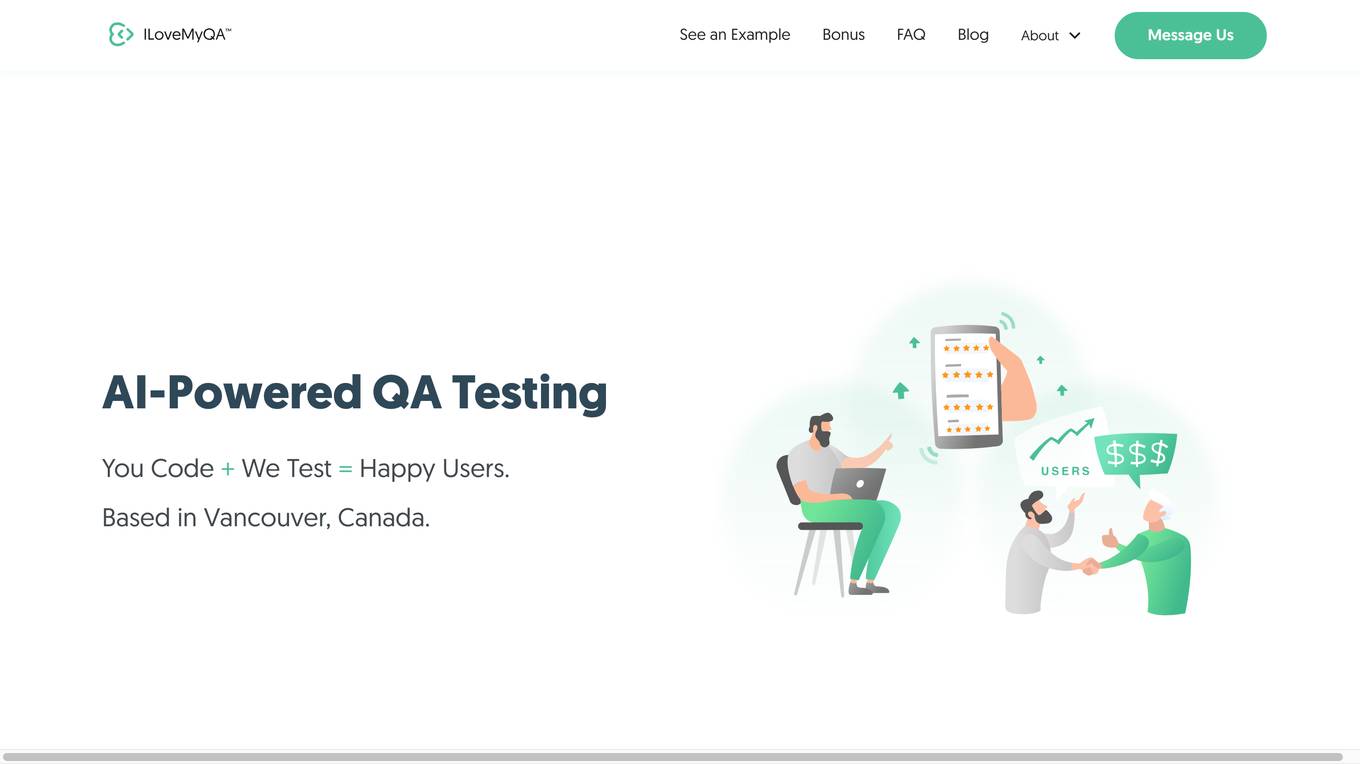
ILoveMyQA
ILoveMyQA is an AI-powered QA testing service that provides comprehensive, well-documented bug reports. The service is affordable, easy to get started with, and requires no time-zapping chats. ILoveMyQA's team of Rockstar QAs is dedicated to helping businesses find and fix bugs before their customers do, so they can enjoy the results and benefits of having a QA team without the cost, management, and headaches.

MaestroQA
MaestroQA is a comprehensive Call Center Quality Assurance Software that offers a range of products and features to enhance QA processes. It provides customizable report builders, scorecard builders, calibration workflows, coaching workflows, automated QA workflows, screen capture, accurate transcriptions, root cause analysis, performance dashboards, AI grading assist, analytics, and integrations with various platforms. The platform caters to industries like eCommerce, financial services, gambling, insurance, B2B software, social media, and media, offering solutions for QA managers, team leaders, and executives.
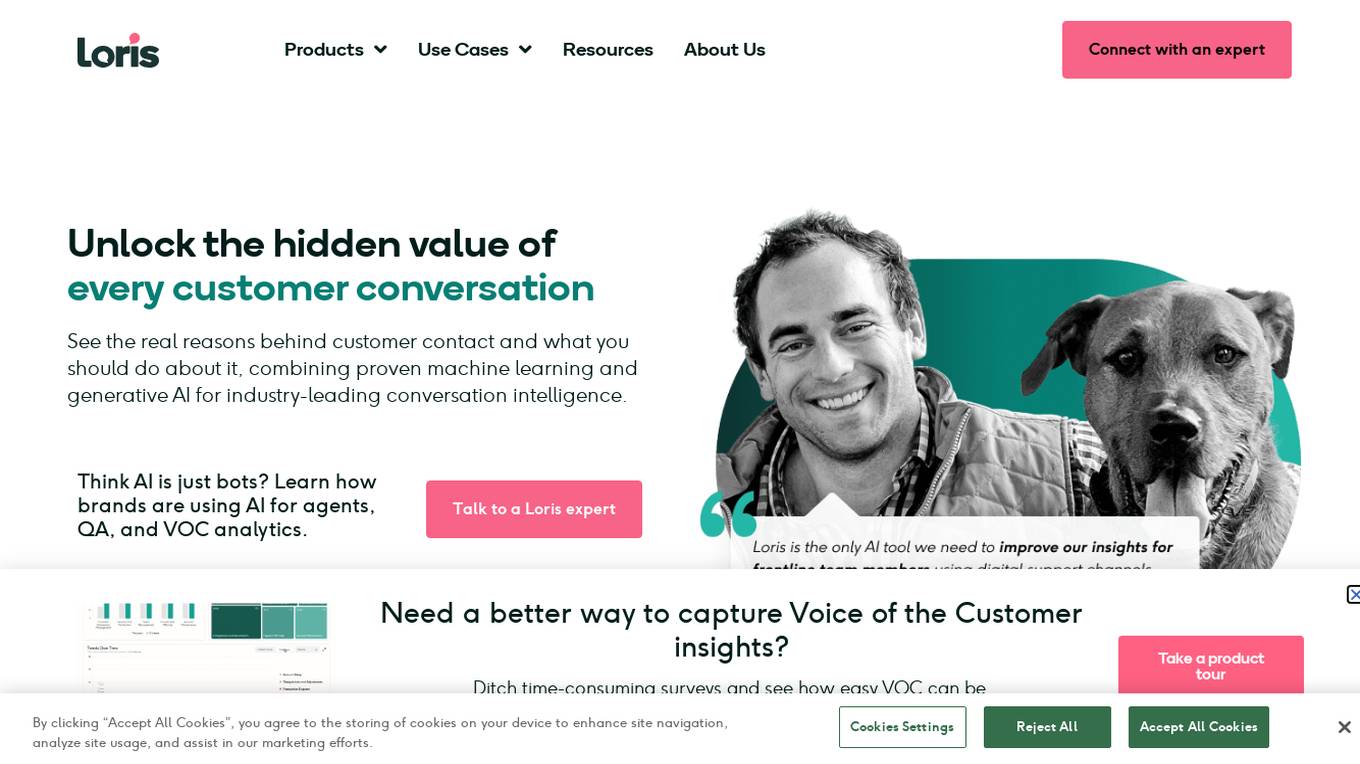
Loris
Loris is a conversational intelligence platform designed for leading brands to unlock the hidden value of every customer conversation. It combines proven machine learning and generative AI to provide industry-leading conversation intelligence. Loris helps customer service teams be more efficient, improve customer experience, and drive revenue growth by transforming customer conversations into actionable insights. The platform offers features such as automated quality assurance, real-time agent co-pilot, and customer insights to enhance agent performance and increase customer satisfaction.
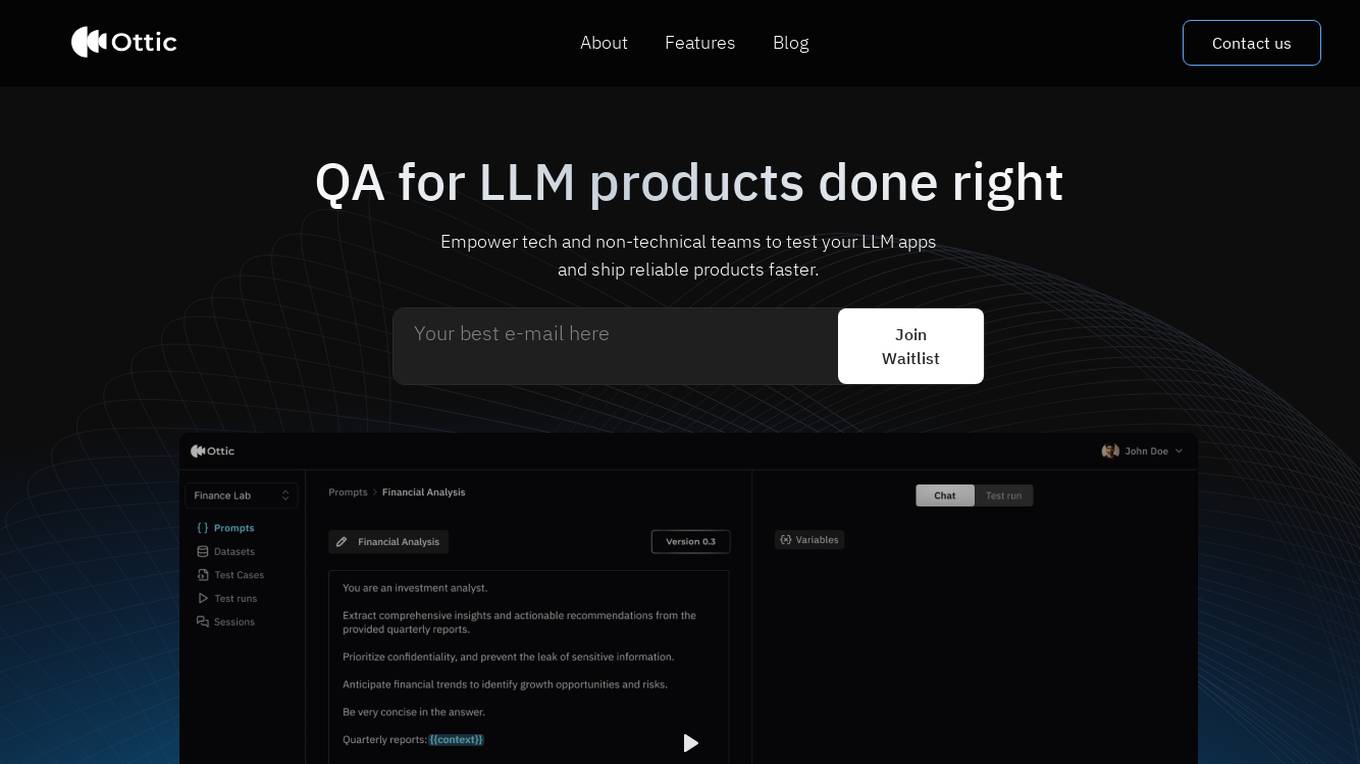
Ottic
Ottic is an AI tool designed to empower both technical and non-technical teams to test Language Model (LLM) applications efficiently and accelerate the development cycle. It offers features such as a 360º view of the QA process, end-to-end test management, comprehensive LLM evaluation, and real-time monitoring of user behavior. Ottic aims to bridge the gap between technical and non-technical team members, ensuring seamless collaboration and reliable product delivery.
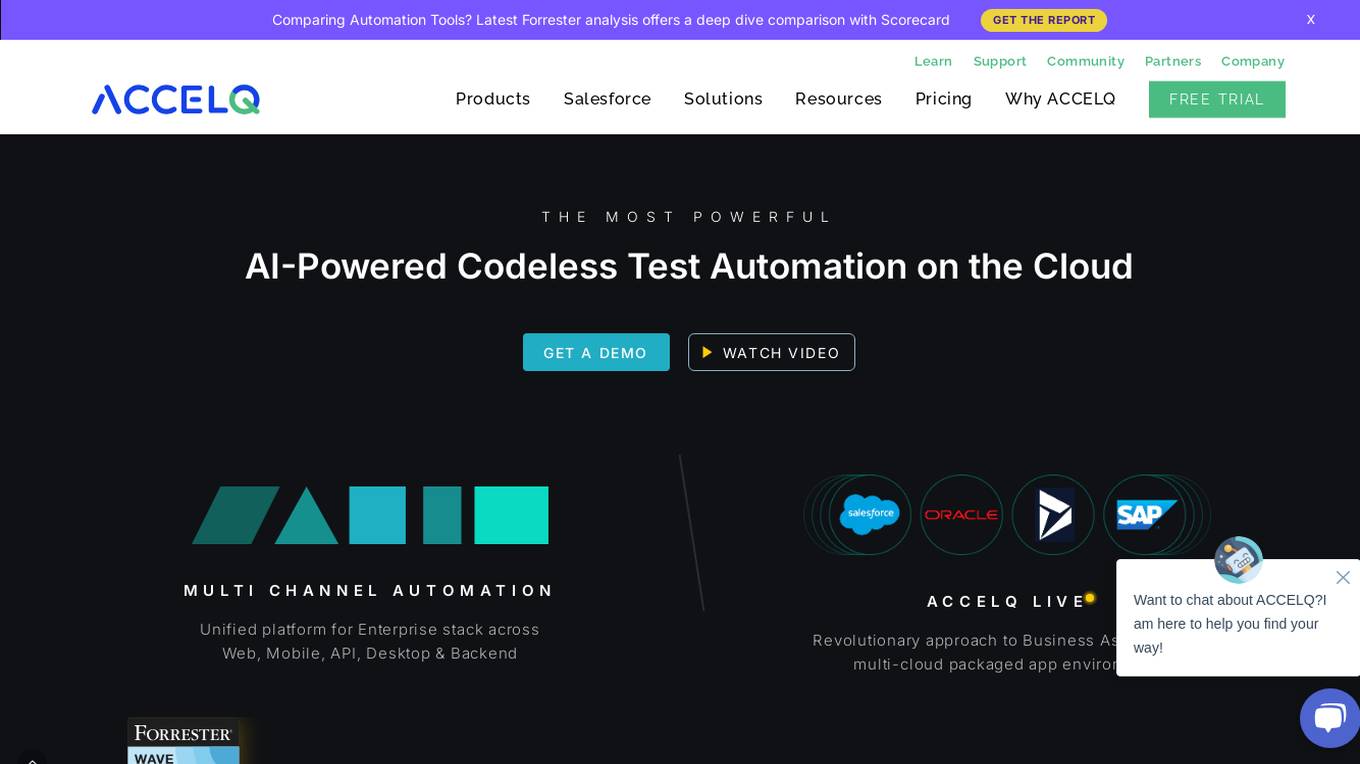
ACCELQ
ACCELQ is a powerful AI-driven test automation platform that offers codeless automation for web, desktop, mobile, and API testing. It provides a unified platform for continuous delivery, full-stack automation, and manual testing integration. ACCELQ is known for its industry-first no-code, no-setup mobile automation platform and comprehensive API automation capabilities. The platform is designed to handle real-world complexities with zero coding required, making it intuitive and scalable for businesses of all sizes.
0 - Open Source Tools
20 - OpenAI Gpts
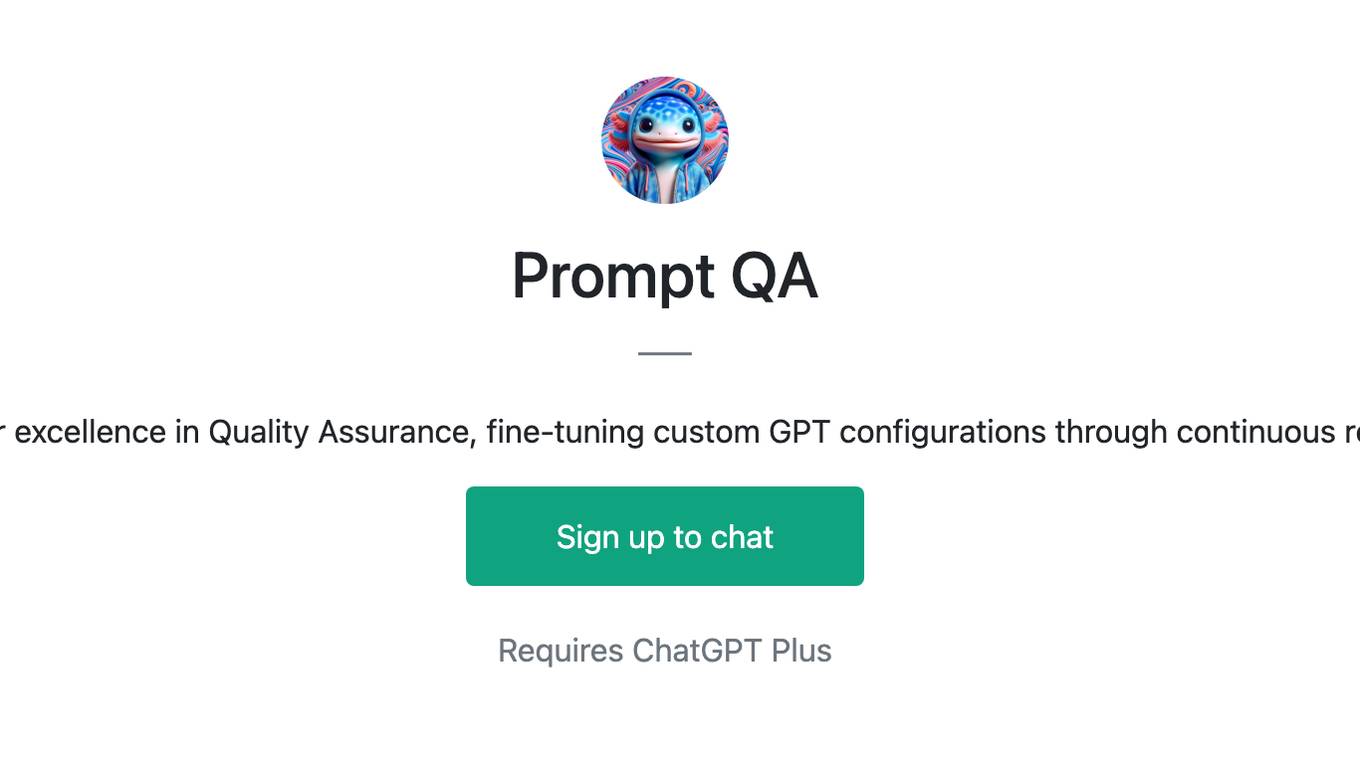
Prompt QA
Designed for excellence in Quality Assurance, fine-tuning custom GPT configurations through continuous refinement.
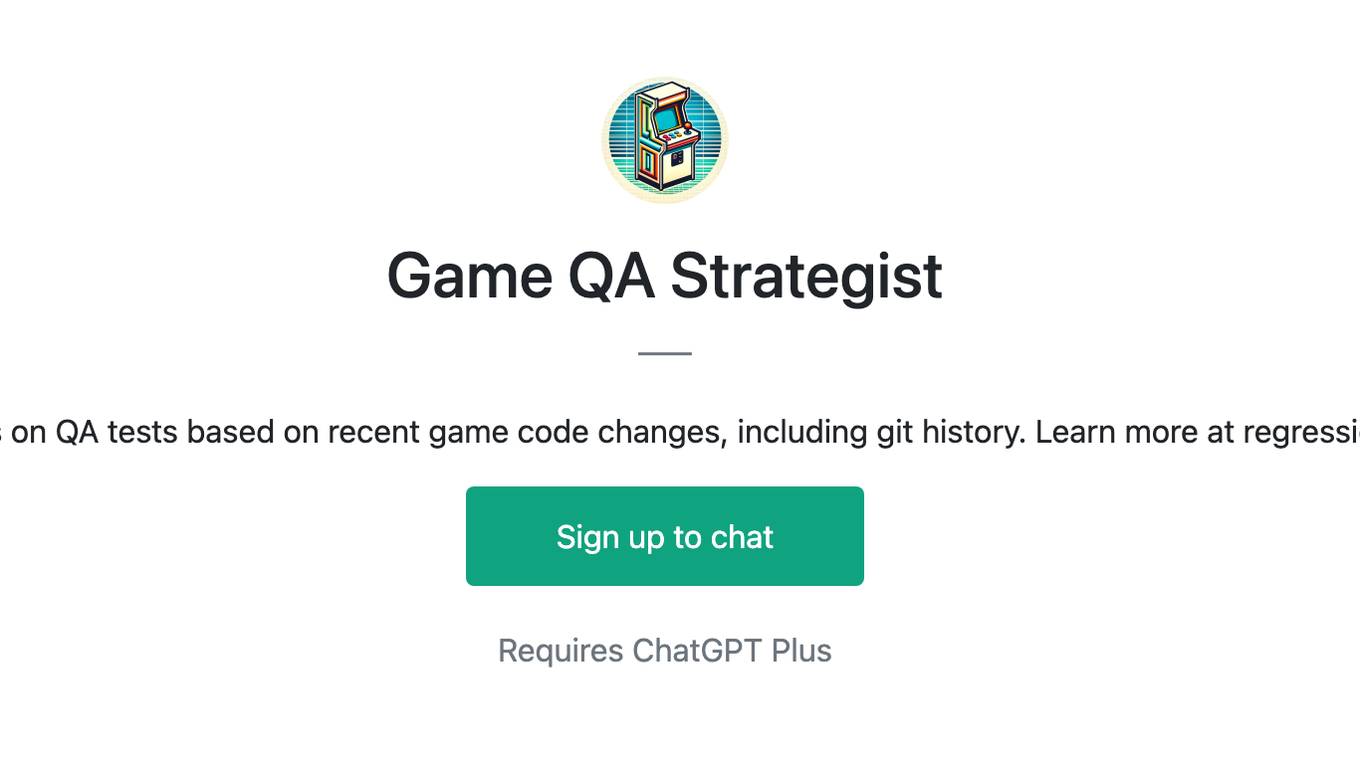
Game QA Strategist
Advises on QA tests based on recent game code changes, including git history. Learn more at regression.gg
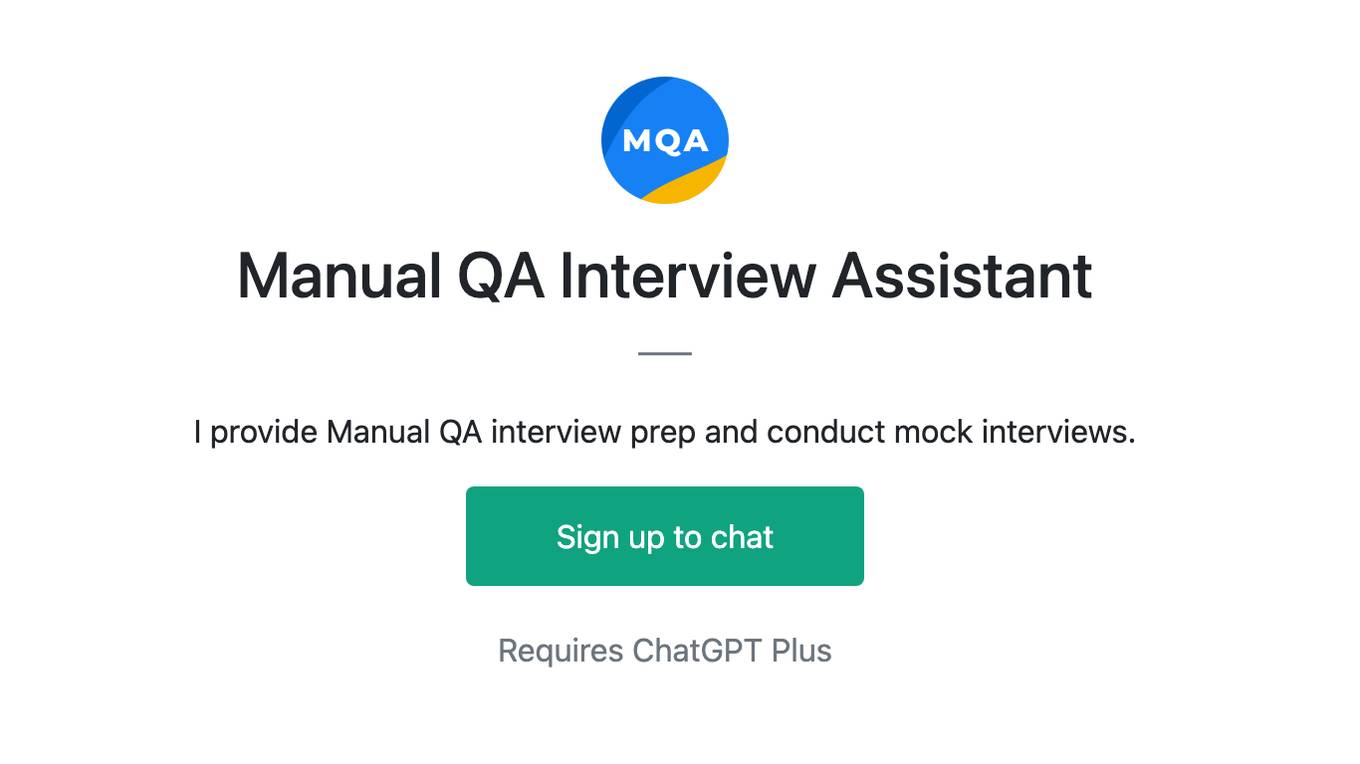
Manual QA Interview Assistant
I provide Manual QA interview prep and conduct mock interviews.
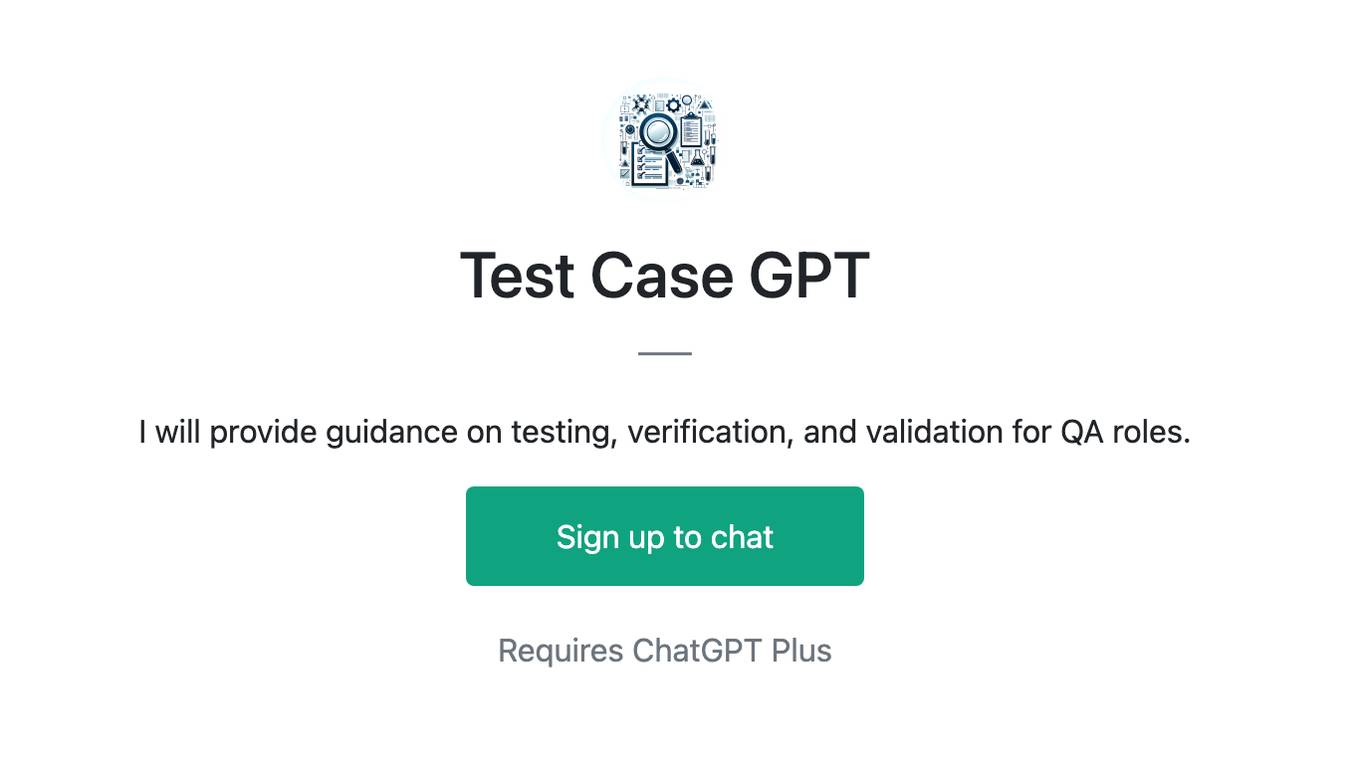
Test Case GPT
I will provide guidance on testing, verification, and validation for QA roles.
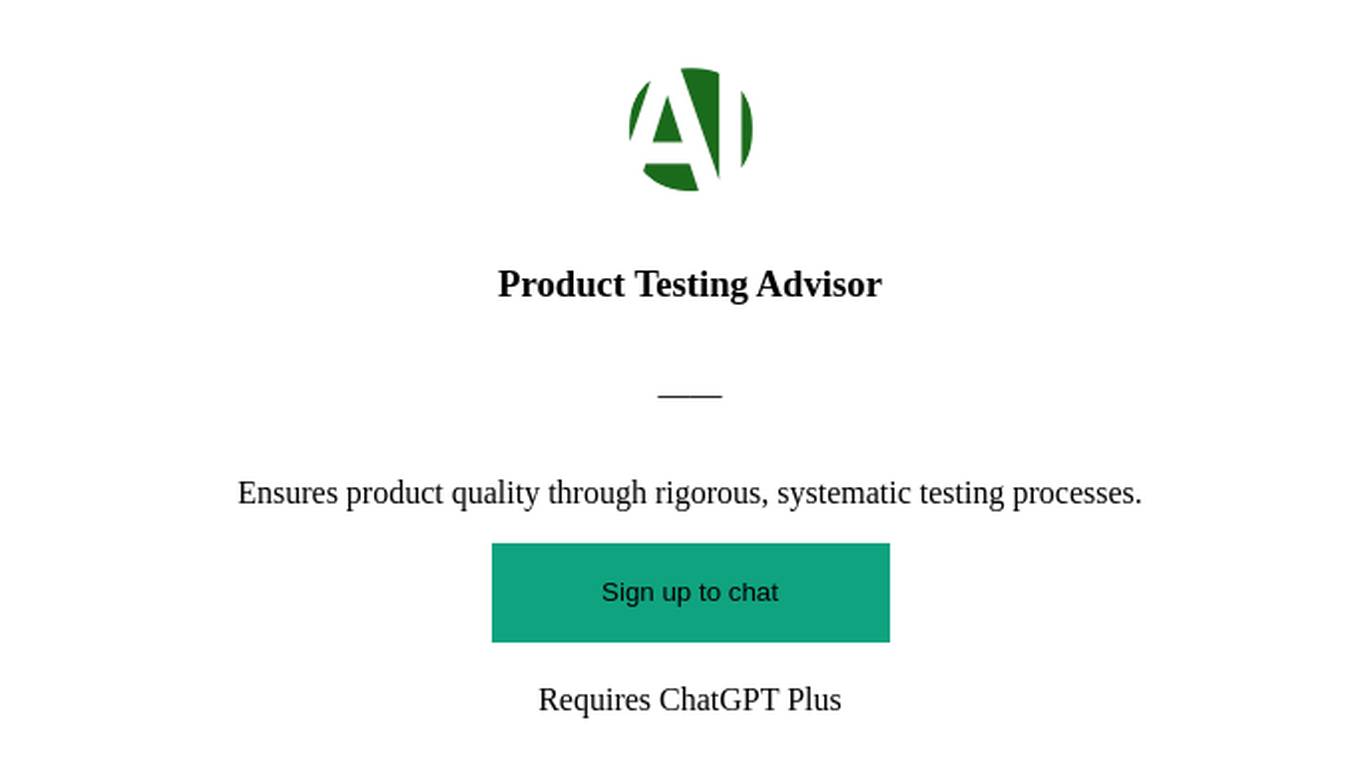
Product Testing Advisor
Ensures product quality through rigorous, systematic testing processes.
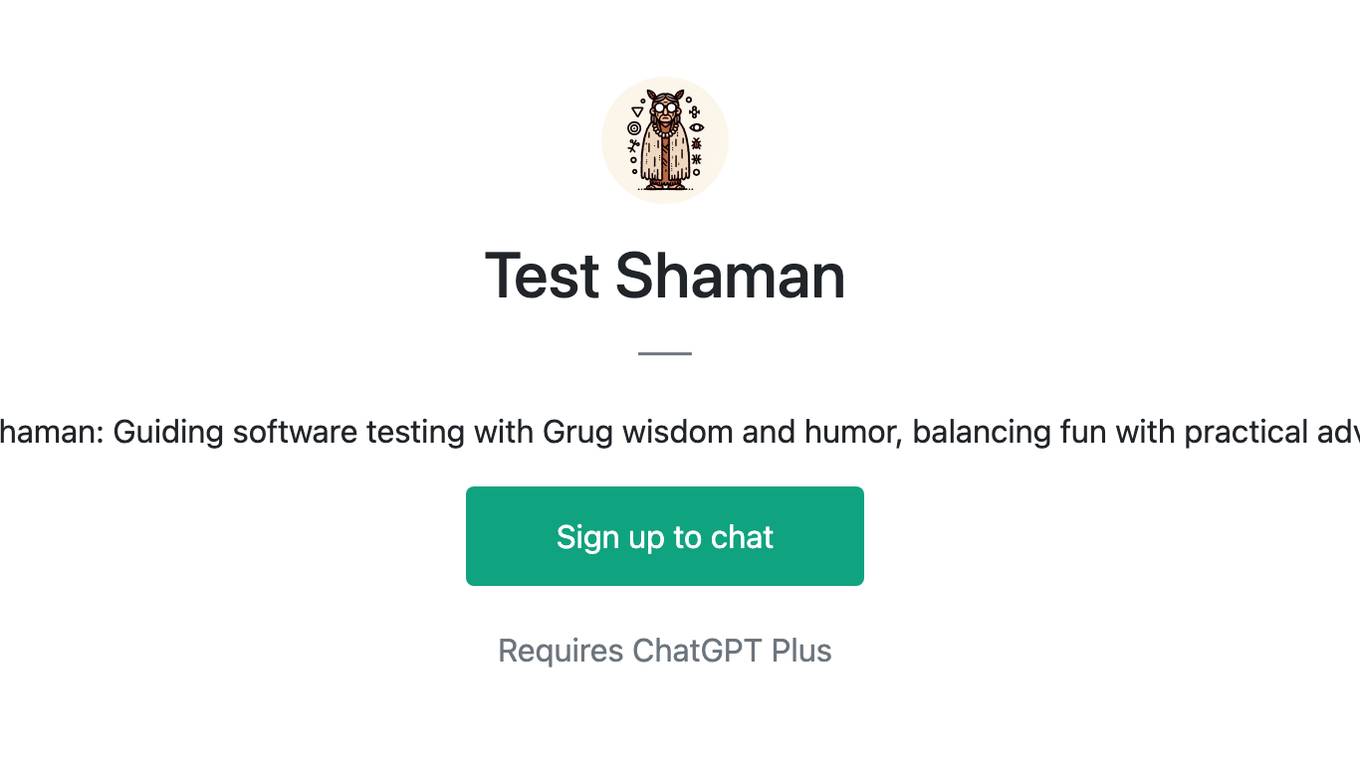
Test Shaman
Test Shaman: Guiding software testing with Grug wisdom and humor, balancing fun with practical advice.
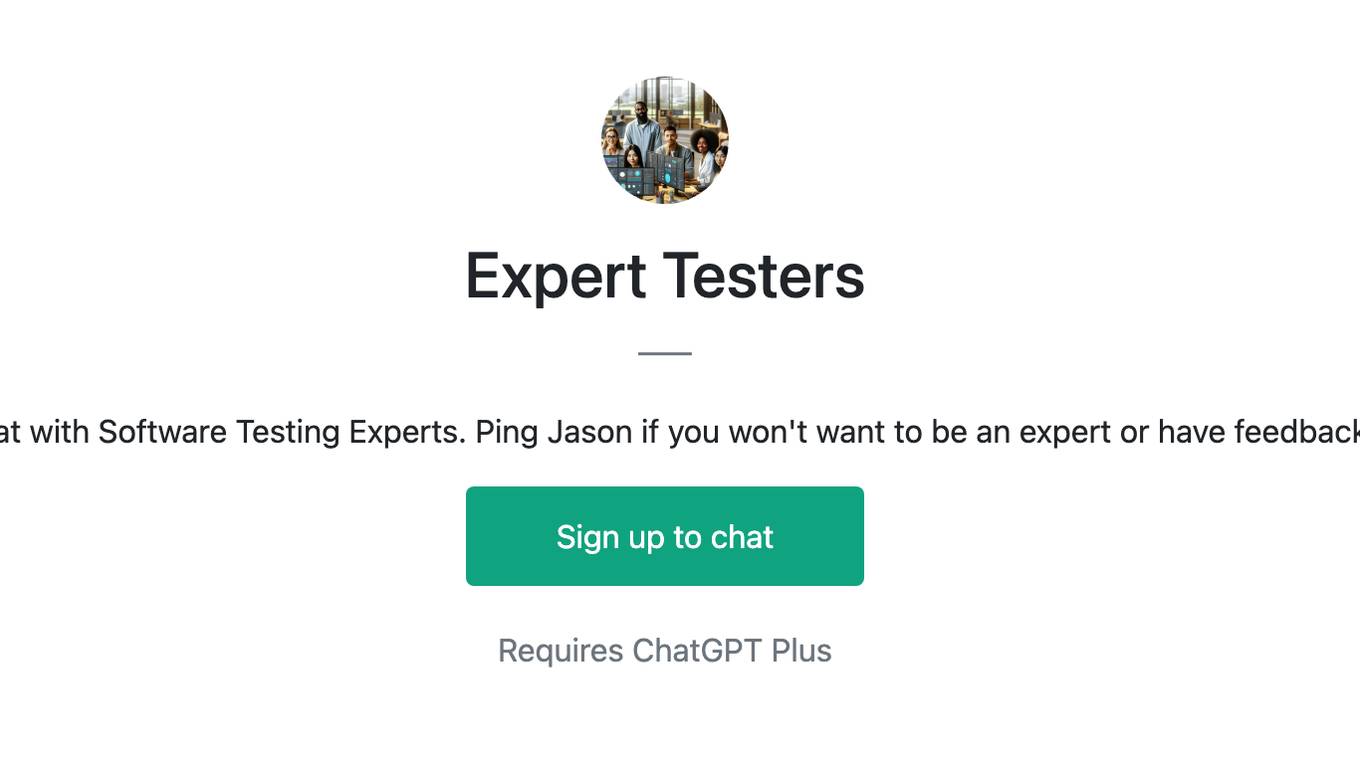
Expert Testers
Chat with Software Testing Experts. Ping Jason if you won't want to be an expert or have feedback.
